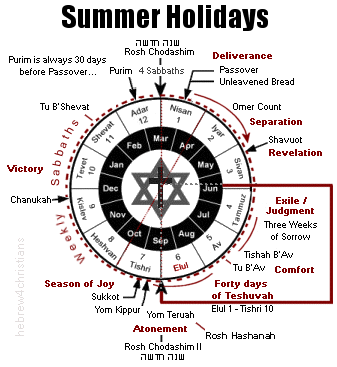|
Jewish Holiday Calendar
Note: For June 2014 site updates, please scroll past this entry....
In the summer there occurs a three week period of mourning that begins with the Fast of Tammuz and ends with Tishah B'Av. The last nine days of this three week period (i.e., from Av 1 until Av 9th) are days of increased mourning. However, after this somber time, the romantic holiday of Tu B'Av, the 15th of Av occurs. Summer ends with the 30 days of the month of Elul, a yearly season of teshuvah (repentance) that anticipates Rosh Hashanah and the fall holidays. The 30 days of Elul are combined with the first 10 days of the month of Tishri to create the "Forty Days of Teshuvah" that culminate with Yom Kippur.
The Summer Holidays:

Note that in accordance with tradition, the following holiday dates begin at sundown:
- Month of Tammuz (begins Friday, June 27th, 2014)
- Month of Av (begins Sunday, July 27th, 2014)
- Month of Elul (begins Monday, August 25th, 2014)
June 2014 Updates
Overruling the Wicked...

06.29.14 (Tammuz 1, 5774) Our Torah portion for this week (Balak) is named after a fearful Moabite king (בָּלָק) who sought to curse the Jewish people by hiring the services of a wicked Midianite "prophet" named Balaam (בִּלְעָם). King Balak's plan was to employ Balaam's sorcery (כַּשָׁפוּת) against the Israelites to prevent them from entering the Promised Land. Similar to the delicious irony that befell the villain Haman in the Book of Esther, however, King Balak's scheme was upended, and the curse he sought to put on the Jewish people was repeatedly pronounced as a blessing by Balaam instead. After several foiled attempts, Balak finally dismissed the prophet, but before departing from the dejected king, Balaam ironically prophesied the destruction of the Moabites and the victorious establishment of Israel. The shameful story of Balaam reveals that "there is no enchantment against Jacob, no divination against Israel" (Num. 23:23). Ein od milvado (אֵין עוֹד מִלְבַדּו) - no weapon or scheme devised against God will ever prosper (Isa. 54:15-17).
But who was this mysterious prophet named Balaam? According to Jewish tradition, Jacob's wicked uncle Laban had a son named Beor (בְּעוֹר), who became the father of Balaam. In other words, the "cursing prophet" Balaam was none other than the grandson of Laban:
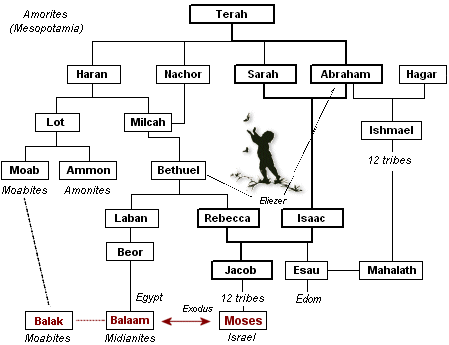 |
Note that the name "Beor" first appears in connection with a king of Edom (Gen. 36:32), which suggests that Balaam might have once been a king of the Edomites (i.e., the descendants of Esau). Further note the phonetic similarity to Peor. If Beor and Peor are the same, then Balaam was actually a prophet of Baal Peor, a local Semitic god.
Balaam was regarded as a great seer, magician and an adept in the occult. He had an "evil eye" and drew the spirit of demons to anything he gazed upon (Avot 5:22). His notoriety made him famous, and powerful people asked him to invoke curses on their enemies. The Talmud (Sanhedrin 106a) states that Balaam became so famous as a magician that he later became a chief advisor to Pharaoh. It was Balaam who advised the new Pharaoh to enslave the Israelites and to afflict them with brutal taskmasters (Exod. 1:8-11). For more information about the identity of Balaam, see the entry entitled, "The Curses of Balaam."
Seeing the Unseen...

06.27.14 (Sivan 29, 5774) The Torah begins with the Hebrew letter Bet (בּ), representing the number two, because God created not one world, but two. There is the realm of this world, called olam ha-zeh (עוֹלָם הַזֶּה), and there is the realm of the world to come, called olam ha-ba (עוֹלָם הַבָּא). The letter Bet therefore represents a two-fold house (בַּיִת) - the "house" of physical creation and the "house" of spiritual reality. The letter itself is formed from three Vavs (ו), which add up to 18, the same value for the word chai (חי), or "alive." We are strangers and sojourners here. Life is this present world is likened to a walking a corridor that leads to the next world. Awaken to your eternal end in the world to come: "Know whence you came and to where you are going and before Whom you are destined to give a final accounting" (Pirkei Avot 3:1). "So do not lose heart. Though our outer self is wasting away, our inner self is being renewed day by day. For this light momentary affliction is preparing for us an eternal weight of glory beyond all comparison, as we look not to the things that are seen but to the things that are unseen. For the things that are seen are transient, but the things that are unseen are eternal" (2 Cor. 4:16-18). Press on toward the goal for the prize of the upward call of God in Yeshua our Messiah (Phil. 3:14).
Shabbat Shalom, chaverim...
The Decree of Faith...

06.27.14 (Sivan 29, 5774) "This is the decree of the Torah... take a red cow" (Num. 19:2). The mitzvah of the red cow is called "the" decree of Torah (חֻקַּת הַתּוֹרָה), as if it were the central mitzvah, thereby highlighting the necessity of faith, and in particular, faith that believes healing from death is obtained by a divine exchange of the pure for the impure. The idea of God's substitutionary atonement, his love that empathizes and heals you of sin - is therefore the heart of faith, the central decree of true Torah. And this, of course, is the message of the cross itself: Jesus "saves people from their sins" (Matt. 1:21). Yeshua was willing to become unclean, cut off, and the bearer of your sin so that you could be made pure, clean, and accepted in exchange (2 Cor. 5:21).
Saved from Death's Sting...
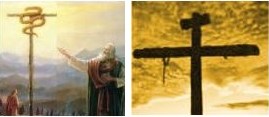
[ The following concerns this week's Torah reading, parashat Chukat... ]
06.27.14 (Sivan 29, 5774) "Everyone who is bitten, when he sees it, shall live" (Num. 21:8). The fiery serpent – the very sting of which brings death – is what must be looked upon, confronted, and confessed. We must look at that which kills us, and by seeing it, we can then see God's miracle (נֵּס) that delivers us... Therefore we look to the cross – the place where Yeshua clothed himself with our sickness and sin – to realize God's remedy for our eternal healing. As Yeshua explained to Nicodemus, "As Moses lifted up the serpent in the wilderness, so must the Son of Man be lifted up, that whoever believes in him may have eternal life" (John 3:14-15). Humanity as a whole has been "bitten by the snake" and needs to be delivered from its lethal venom. Just as the image made in the likeness of the destroying snake was lifted up for Israel's healing, so the One made in the likeness of sinful flesh (Rom. 8:3) was to be lifted up as the Healer of the world. In Yeshua the miraculous exchange takes place: "For our sake he made him to be sin who knew no sin, so that in him we might become the righteousness of God" (2 Cor. 5:21). Bless His holy name!
Irrepressible Hope...

06.27.14 (Sivan 29, 5774) He touched their eyes, saying, "According to your faith be it done to you" (Matt. 9:29). If this principle applies to our own expectation and hope, all the more does it apply to God's own (1 Cor. 13:7). Our Lord says, "If you ask me anything in my name, I will do it" (John 14:14). Ask in faith then, "nothing wavering," and do not grieve the Spirit with doubt and fear. God will always keep his word, even if we sometimes cannot apprehend his response to our petition. Ask - believing - with the confidence that the LORD is forever faithful and does not lie (Num. 23:19; 1 Sam. 15:29). Ask, and keep on asking... The great danger is to leave off your wrestling, to resign yourself to your fate. No - push forward; be relentless; prevail in your confidence that God is hearing you and will act on your behalf. Pour out your heart; lay bare your soul; cast your burdens upon Him; reach the place of silent expectation, trusting your heavenly Father to perform the miracle...
Engraved Upon His Hands...

[ The following concerns this week's Torah reading, parashat Chukat... ]
06.27.14 (Sivan 29, 5774) The Hebrew word "chok" means a "divine decree," derived from a verb meaning "to engrave" (חָקַק). The sages say that the word is directed to a desire to do God's will that is "engraved" upon the heart rather than simply understood with the intellect (2 Cor. 3:3). The first time "chok" (חוֹק) appears in the Torah concerns Abraham's obedience of faith as demonstrated by the sacrifice of his beloved son (Gen. 26:5), and the second time concerns the sacrifice of the Passover: "This day shall be for you a memorial day, and you shall keep it as a feast to the LORD; throughout your generations, as an eternal decree (חֻקַּת עוֹלָם), you shall keep it as a feast (Exod. 12:12-13). Because both the Akedah and the sacrifice of the Passover lamb reveal God's yeshuah, his salvation, we are to engrave the significance of our deliverance within our hearts forever... Amen, just as God Himself has so engraved us upon his own heart, it is written, "behold, I have engraved you on the palms of my hands" (הֵן עַל־כַּפַּיִם חַקּתִיךְ) - Isa. 49:16a.
Substance and Faith...

06.27.14 (Sivan 29, 5774) Do we understand in order to believe, or do we believe in order to understand? Faith sees what is possible; it "reifies" hope and abides in the realm of promise (Heb. 11:1). Therefore we believe in order to see; we do not see in order to believe... As Blaise Pascal once said, "The heart has its reasons that reason knows not of." We don't look to the scientific method to discover meaning, value, purpose, and so on, since science presupposes these things. Science cannot validate itself using its own methodology, nor can it explain why there is an external world, why the future should resemble the past, or why there is something rather than nothing at all... Nor can science explain the heart's hunger for life, for meaning, for love, beauty, and for deliverance from alienation, guilt, and death. Science "explains" music in terms of sound waves, but the human heart hears melody, longing, hope... Faith requires you to go beyond the sensible world of the human mind, with its causes and effects, to descry the deeper world of the Spirit.
Shadows and Reality...

06.26.14 (Sivan 28, 5774) Sometimes we seem to forget that we are not home yet... Socrates said that philosophy, when done correctly, was "practice for death," since the passing shadows of this world pointed to unchanging good, our true end. Likewise Yeshua our Messiah taught us to take up the cross and die daily (Luke 9:23).
It is difficult for us to die, to let go, however, because we are deeply attached to this world, and we often abide under the worldly illusion that we will live forever, that tomorrow will resemble today, and that heaven can wait... History is littered with crumbling monuments offered to the idols of this world. The Scriptures are clear, however: "The present form (τὸ σχῆμα) of this world is passing away" (1 Cor. 7:31), and the heart of faith seeks a city whose Designer and Builder is God Himself (Heb. 11:10). "So we do not lose heart. Though our outer self is wasting away, our inner self is being renewed day by day... For the things that are seen are turning to dust, but the things that are unseen endure forever (2 Cor. 4:16-18). Because of our sin, creation was made "subject to vanity," though God has overcome the dust of death by giving us an unshakable hope (Rom. 8:20).
אָדָם לַהֶבֶל דָּמָה
יָמָיו כְּצֵל עוֹבֵר
a·dam · la·he·vel · da·mah
ya·mav · ke·tzel · o·veir

"Man is like a breath;
his days are like a passing shadow."
(Psalm 144:4)
The truth that ha'kol oveir (הַכּל עוֹבֵר), "everything passes" like a shadow, should help us keep our perspective regarding the various moments of testing we all face in this life. As Nachman of Breslov once said, "The whole earth is a very narrow bridge, and the important thing is never to be afraid" (כָּל־הָעוֹלָם כֻּלּוֹ גֶּשֶׁר צַר מְאד וְהָעִקָּר לא לְפַחֵד כְּלָל). Yeshua is the Bridge to the Father, the narrow way of passage that leads to life. He has overcome the meretricious world and its vanities. He calls out to us in the storm saying, "Take heart. It is I; be not afraid" (Matt. 14:27). When Peter answered the call and attempted to walk across the stormy waters, he lost courage and began to sink, but Yeshua immediately took hold of him, saying, "O you of little faith, why did you doubt (lit., think twice)?"
The Decree of Torah...

[ The following concerns this week's Torah reading, parashat Chukat... ]
06.26.14 (Sivan 28, 5774) The Hebrew word mitzvah (מִצְוָה) generally means "divine commandment" or "blessing" (mitzvot is the plural form). The various mitzvot found in the Torah may be further divided into the subcategories of "chukkim u'mishpatim" (Deut. 4:5). Chukkim (חֻקִּים) are statutes given without a reason (i.e., divine decrees). The classic example is the decree of the Red Heifer, which, legend has it, defied even the wisdom of King Solomon. Mishpatim (מִשְׁפָּטִים), on the other hand, are laws given for a discernible reason (i.e., logical laws). An example would be the commandment to give charity or prohibitions against theft and murder. These mitzvot are inherently rational and appeal to the need for civil and moral order. The relationship between chukkim and mishpatim -- or between "faith and reason" -- is highly interdependent, however, and the sages ultimately concluded that every commandment (regardless of type) may be regarded as if it were a decree given without a reason (i.e., all "mishpatim" may be reduced to the status of "chukkim"). This is because the merely rational acceptance of "religion" is insufficient to touch the heart of faith. We do not "understand to believe," but the other way around. A person who thinks it's "reasonable" to obey one commandment might later change his or her mind if their passion sways them to suddenly regard it as "irrational." No, we should obey God simply because God asks us to trust in him. We believe to understand... The great example here is the Akedah (עֲקֵדָה, "binding"), when Abraham willingly offered up his beloved son Isaac upon the altar as a sacrifice (Gen. 22:1-14). Abraham surely understood all the "commandments, decrees, and laws" of God (Gen. 26:5), but his faith led him to surrender his need to understand in devotion to the LORD. Abraham's Torah was that of faith: "And he believed in the LORD, and He counted it to him as righteousness" (Gen. 15:6). Surrendering our ego's reasoning by accepting the wisdom of the LORD is the essential decree of the entire Torah.... (for more on this subject, click here...)
Note: The sages ask why the decree of the red heifer and the death of Miriam appear together in our Torah portion, and they answer that like the red heifer, death is a great enigma, and indeed, the hardest thing to understand in life is death. The Talmud says there were two sages, Rav Huna and Rav Chisda. Both were godly men. One lived until the age of 92, was wealthy and lived to see 60 weddings of his offspring; the other lived until the age of 40, was impoverished and saw the funerals of 60 members of his family. Why? Only God knows. Despite such incongruities, however, it is up to us to put our trust in Him.
Cleansing from Death...
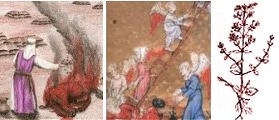
[ The following concerns this week's Torah reading, parashat Chukat... ]
06.25.14 (Sivan 27, 5774) The Torah discusses the halachot (laws) of preparing the red heifer before indicating its purpose. It is only later in the section that the issues of impurity (i.e., tumah: טֻמְאָה) and purity (i.e., tahora: טָהֳרָה) are connected with the ritual. Here we learn that the sacrifice of the red heifer was meant to create the "waters of separation" (i.e., mei niddah: מֵי נִדָּה) for the community. The sages state in this regard: "God created the cure before the plague," meaning that His love is the foundation of all things: עוֹלָם חֶסֶד יִבָּנֶה / olam chesed yibaneh: "steadfast love built the world" (Psalm 89:2). Just as God created mankind only after He created the pathway of repentance (i.e., the "Lamb slain from the foundation of the world": Eph. 1:4, Heb. 4:4, Rev 13:8), so the purification from death was also foreseen and provided. The "waters of separation" ultimately refer to our purification (i.e., identification) with the death of Yeshua (Rom. 6:3, 1 Cor. 10:13; Gal. 3:27).
Unlike all other sacrifices offered at the mizbeach (altar at the Mishkan), the red heifer was taken outside the camp and there slaughtered before the priest, who then took some of its blood and sprinkled it seven times before the Tabernacle (thereby designating it as a purification offering). During the Second Temple period, the High Priest performed this ceremony facing the Holy of Holies while atop the Mount of Olives. Then the red heifer would be burned in its entirety: its hide, flesh, blood, and even dung were to be burned (unlike other Levitical sacrifices). Unlike other offerings, all the blood of the sacrifice was to be burned in the fire. This is extremely noteworthy, since blood was otherwise required to be poured beside the altar before being offered.... Hyssop, scarlet yarn, and a cedar stick would then be thrown upon the burning red heifer, the same items used to cleanse from sin or tzara'at (skin disease). In other words, the blood was assimilated into the ashes of the sacrifice, which were then gathered and mixed with water to create the "waters of separation" (i.e., mei niddah: מֵי נִדָּה) for the community.
The paradox of the red heifer sacrifice suggests profound truth about the sacrificial death of Yeshua our Savior. The kohen (priest) who sprinkled the ashes of the red heifer became tamei (unclean) himself, even though the defiled person became tahor (pure). The picture of the priest here is one of sacrificial love - the giving up of one's own spiritual purity so that another person can regain his purity... "Sprinkle me with hyssop, and I will be clean" (Psalm 51:7). Just so, Yeshua willingly became unclean on our behalf - through our contact with sin and death - so that we could become clean (Isa. 53:4, 2 Cor. 5:21, Gal. 3:3, Eph. 5:2, Titus 2:14). Because of Yeshua, the impure become pure, even though He became impure through His offering. Because of Him, we have been cleansed from our sins "by a better sprinkling" than that which the Tabernacle of Moses could afford (Matt. 26:28, Heb. 9:14, 12:24, Eph. 1:7, 1 Pet. 1:2,18-19, Rom. 5:9; Col. 1:14, 1 John 1:7, etc.).
Note: For more on this fascinating topic, see the "Gospel of the Red Cow."
Beauty for Ashes...

[ The following entry concerns this week's Torah reading, parashat Chukat. Please read the Torah portion to "find your place" here. ]
06.24.14 (Sivan 26, 5774) The ashes of the red heifer represented the death and sacrifice of something extremely rare, valuable, and precious. The ashes were mixed with "living water" (מַיִם חַיִּים) to reveal the truth that though the end of all flesh is but dust and ashes, the Spirit gives cleansing and life. Indeed the word ashes (אֵפֶר) may be rearranged to spell both cure (רַפֵא) and beauty (פְאֵר). The author of the book of Hebrews argues from the lesser to the greater: If the sprinkling of water mixed with the ashes of a red heifer purify the flesh from contamination with physical death, how much more does the blood of Messiah purify the soul from the deeds that cause spiritual death? (Heb. 9:13-14). Indeed, because of Yeshua's sacrifice we are given "beauty for ashes, the oil of joy for mourning, the garment of praise for the spirit of heaviness," that we may be called oaks of righteousness, the planting of the LORD, that He may be glorified (Isa. 61:3).
Prayer for Focus...

06.24.14 (Sivan 26, 5774) In the busyness of the day, in anxious murmurings of the heart, Lord, I have missed you... in my haste, I have lost sight of you; I have heeded voices of fear; I have sought after my own way; I have become distracted, unfocused, unclear... O God, leave me not, neither forsake me - despite my wandering, despite the ambivalence of my soul, for "whom have I in heaven but you," and to whom shall I turn for life? I have no good apart from You. Help me escape the vanity and deceit of my own heart; help me to re-focus on what is real. Let not this day be lost to triviality; let it not be marked by unuttered prayer or lost passion for heaven. "As a deer longs for streams of water, so my soul longs for you, O God. I thirst for God, for the living God" (Psalm 42:1-2). Grant me blessed hunger and thirst for you; impart holy desperation and longing for you alone; turn my heart to seek you bekhol levavkha, with all my heart...
The Sin of Moses...

06.24.14 (Sivan 26, 5774) And God said, "Speak to the rock..." but Moses struck the rock twice with his staff" (Num. 20:8,11). This was Moses' sin for which his punishment was exile from the Promised Land. The punishment might seem severe, but God intended Moses' actions to be prophetic. When the people first demanded water at Rephidim, Moses was told to strike the rock with his staff (Exod. 17:6). The Hebrew word used to describe how Moses "struck" the rock is the same used to describe how Yeshua was "smitten by God" (Isa. 53:4). The Rock symbolized the Messiah, the One stricken for His people to give them waters of life (Isa 55:1; 1 Cor. 10:4). Moses' act of disobedience implied that rock needed to be stricken again to give life, instead of speaking to it as the "Living Rock." In his frustration, Moses lost sight of the LORD by suggesting that he and Aaron were responsible for the miracle of the water ("listen, you rebels, shall we bring forth water for you?"[Num. 20:10]), and God could not leave those words unanswered before the people. That is why God told Moses that his exile from the land was the result of his sin not sanctifying (i.e., honoring) the LORD before the people of Israel (Num. 20:12).
Note: The sages sometimes expressed dismay that Moses was bereft of seeing his dream come true by entering the Promised Land, but we know that there is a happy ending regarding that point (see Matt. 17:3).
The Path of Life...

06.24.14 (Sivan 26, 5774) Spiritual regeneration or transformation isn't just leaving the sinful past behind you, but discovering the glory of true and infinite life that sustains all of reality... There is change of perspective, of no longer backing away from the hell you came out of by turning around to focus on heaven, your true spiritual home. We are called to pursue the goal of the upward call of God in Messiah (Phil. 3:14). If we walk in the light, the LORD will cause us to know "orach chayim," the path of life; we will find joy in the Divine Presence; and we will discover pleasures that endure forever:
תּוֹדִיעֵנִי ארַח חַיִּים
שׂבַע שְׂמָחוֹת אֶת־פָּנֶיךָ
נְעִמוֹת בִּימִינְךָ נֶצַח
to·di·ei·ni · o·rach · chai·yim
so·va' · se·ma·chot · et · pa·ne·kha
ne·i·mot · bi·min·kha · ne·tzach

"You will cause me to know the path of life;
in your presence there is fullness of joy;
at your right hand are pleasures forevermore."
(Psalm 16:11)

Download Study Card
Have you discovered the glory and wonder of God's love, despite the many sins and the shame of your life? Do you know "in your gut" that his love means no longer having to defend or explain yourself? God's love enables you to quit hiding what you really are from Him; you can give up the pretense of being something you're not. When you turn to the Lord in the transparency of your brokenness, weakness, and neediness, you will find Him there, accepting you for who you really are... The path of life is -- the path of life!
Our Wounded Healer...

[ The following entry concerns this week's Torah reading, parashat Chukat. Please read the Torah portion to "find your place" here. ]
06.23.14 (Sivan 25, 5774) Our Torah portion this week (Chukat) begins, zot chukat ha-Torah (זאת חֻקַּת הַתּוֹרָה), "this is the decree of Torah" (Num. 19:2). The language here is both striking and unique, suggesting that what follows is "the seminal decree" of the entire Torah... If we think about the meaning of the mysterious decree of the red heifer, however, we will realize that its ashes were used to create the "waters of separation" (i.e., mei niddah: מֵי נִדָּה) to cleanse people from contact with death (i.e., separation). To fulfill God's vital decree, however, required sacrificial love, since the priest who offered this service would become defiled (separated) for the sake of the healing of others... The Hebrew word for love is ahavah (אַהֲבָה), from a root verb (יָהַב) that means "to give." Love means giving of yourself to benefit another person (John 15:13). The central decree of Torah, then, beyond our ability to rationally understand, is that God's love is so great that it is willing to become dust and ashes on our behalf so that we might find blessing and life...
The mitzvah of parah adamah (i.e., the red heifer) represents the suspension of logic in deference to the Divine Will. This attitude is not restricted to this mitzvah. Scripture introduces the mitzvah of the parah adamah with the words "this is the law of the Torah." Surrendering one's own reasoning and accepting the superior reasoning of Hashem is the law of the entire Torah... To the extent that we let go of our own will, we can understand the Divine will. Our ancestors at Sinai understood this ideal when they proclaimed, "we will do and then we will understand." Torah is not beyond our understanding, but we must be willing to make the sacrifices that true Torah understanding demands. - Living Each Day, Rabbi Abraham Twerski
Yeshua willingly became unclean on our behalf - through contact with our sin and death - so that we could become clean (Isa. 53:4, 2 Cor. 5:21, Gal. 3:3, Eph. 5:2, Titus 2:14). The pure became impure through His sacrificial offering. Because of Him, we have been cleansed from our sins "by a better sprinkling" than that which the Tabernacle of Moses could afford (Matt. 26:28, Heb. 9:14, 12:24, Eph. 1:7, 1 Pet. 1:2,18-19, Rom. 5:9; Col. 1:14, 1 John 1:7, etc.).
Mystery of the Red Heifer...

06.23.14 (Sivan 25, 5774) Last week's Torah portion (Korach) established the authority of Moses (not Reuben) as the leader of Israel, and the authority of Aaron (not other sons of Levi) as God's chosen priestly line. The Israelites (i.e., laymen) were warned to keep their distance from the priestly duties and to allow the appointed representative of the LORD intercede on their behalf.
In this week's Torah portion (Chukat), God first gives the "law of the red heifer," a special whole-burnt offering whose ashes were used to purify someone contaminated by contact with a dead body. The red heifer had to be a perfect specimen that was completely red, "without blemish, in which there is no defect." The sages interpreted "without blemish" to refer to the cow's color, that is, it was to be without a single white or black hair. This is the only sacrifice in the Torah where the color of the animal is explicitly required. Moreover, the cow was never to have had a yoke upon it, meaning that it must never have been used for any profane purposes.
Unlike other sacrifices offered at the altar at the Tabernacle, the red heifer was taken outside the camp to be slaughtered before the priest, who then took some of its blood and sprinkled it seven times before the Tabernacle. Then the heifer would be burned in its entirety: its hide, flesh, blood, and even dung were to be burned (unlike other sacrifices). Also unlike other offerings, the blood of the sacrifice was to be completely burned in the fire.
Hyssop, scarlet yarn, and a cedar stick would then be thrown upon the burning heifer, which were the same items used to cleanse from tzara'at (skin disease). These items, along with the blood of the red heifer, were therefore assimilated into the ashes of the sacrifice, which were gathered and mixed with living water to create what was called the "waters of separation" for the community. Anyone that came into contact with death (i.e., a corpse) was required to be cleansed using these waters. The purification procedure took a full seven days, using three stalks of hyssop dipped into the water and shaken over the defiled person on the third day and then again on the seventh day. After the second sprinkling, the person was immersed in a mikvah and was declared "clean" the following evening.
The Red Heifer ritual is considered "chok" within the tradition, meaning that it defies rational sense. In fact, the Talmud states that of all the taryag mitzvot (613 commandments), this is the only one that wise King Solomon could not fathom. The mystery of the red heifer sacrifice suggests profound truth about the sacrificial death of Yeshua our Savior, however. The kohen (priest) who sprinkled the ashes of the red heifer became tamei (unclean) himself, even though the defiled person became tahor (pure). The picture of the priest here is one of sacrificial love - the giving up of one's own spiritual purity so that another person can regain his purity... "Sprinkle me with hyssop, and I will be clean" (Psalm 51:7). Just so, Yeshua willingly became unclean on our behalf - through our contact with sin and death - so that we could become clean (Isa. 53:4, 2 Cor. 5:21, Gal. 3:3, Eph. 5:2, Titus 2:14). Because of Yeshua, the impure become pure, even though He became impure through His offering. Because of Him, we have been cleansed from our sins "by a better sprinkling" than that which the Tabernacle of Moses could afford (Matt. 26:28, Heb. 9:14, 12:24, Eph. 1:7, 1 Pet. 1:2,18-19, Rom. 5:9; Col. 1:14, 1 John 1:7, etc.).
Shabbat Rosh Chodesh...

06.22.14 (Sivan 24, 5774) When the Sabbath day occurs on the "new moon," it is customary for an additional Torah reading (maftir) to be read during services: "At the beginnings of your months, you shall offer a burnt offering to the LORD" (Num. 28:11). In addition, we will read a different Haftarah portion to remind us that new moon celebrations that will be observed by the entire world after the Messiah returns to establish the Kingdom of God on the earth. On the Torah's calendar, Rosh Chodesh matters!
Rosh Chodesh Tammuz
On the Biblical calendar the fourth month of the year (counting from Nisan) is called Tammuz (תַּמּוּז) in the Jewish calendar. The name "Tammuz" is of Sumerian origin, and some scholars identify it as the name of a Sumerian sun god (Shamash or Dumuzid) who was thought to be responsible for the seasonal life/death/rebirth cycle. The idolatry of Tammuz was something God condemned (Ezek. 8:14), though despite the prophets warnings, the Israelites persisted in it, which led to the destruction of the Holy Temple. The Fast of the 17th of Tammuz marks the beginning of the "Three Weeks of Sorrow," a 21 day period of national mourning for the destruction of the Temple that is completed on Tishah B'Av.
Rosh Chodesh Blessing...
Since the new moon of Tammuz anticipates the beginning of the Three Weeks of Sorrow, we humbly ask the LORD to help us turn to Him with all our hearts:
יְהִי רָצוֹן מִלְּפָנֵיךָ יהוה אֱלהֵינוּ וֵאלהֵי אֲבוֹתֵינוּ
שֶׁתְּחַדֵּשׁ עָלֵינוּ חדֶשׁ טוֹב בַּאֲדנֵינוּ יֵשׁוּעַ הַמָּשִׁיחַ אָמֵן
ye·hi · ra·tzon · mil·fa·ne·kha · Adonai · E·lo·hei·nu · ve·lo·hei · a·vo·tei·nu
she·te·cha·desh · a·lei·nu · cho·desh · tov · ba'a·do·nei·nu · Ye·shu·a · ha·ma·shi·ach · A·men

"May it be Your will, LORD our God and God of our fathers,
that you renew for us a good month in our Lord Yeshua the Messiah. Amen."

Download Study Card
Shadows and Glory...

06.20.14 (Sivan 22, 5774) The Spirit cries out, "The grass withers, the flower fades, but the word of our God will stand forever" (Isa. 40:8). This verse sets up a great contrast between olam ha-zeh and olam haba – between this present world and the heavenly realm. King David states, "Behold, you have made my days a few handbreadths, and my lifetime is as nothing before you (וְחֶלְדִּי כְאַיִן נֶגְדֶּךָ). Surely all mankind stands as a mere vanity" (Psalm 39:5). Yet we hunger and ache for love that fulfills the infinite depth of our hearts: "My soul yearns for you in the night; my spirit within me earnestly seeks you (Isa. 26:9). I say to the LORD, "You are my Lord; I have no good apart from you" (Psalm 16:2). Our hearts are restless until they find their rest in God, the Eternal, the abiding, and true...
For me, heaven doesn't mean walking streets of gold, living in heavenly mansions, or wearing crowns of glory. These things are pictures to help us envision something deeper still. After all, what would "heaven" be if you were on the outside looking in? If it is anything at all, heaven is a sense of home, of acceptance, a place where you are "inside out" and yet completely loved. In short, heaven is nothing less being loved and accepted by the Lord, and hearing him say, "I love you; you belong to me; I call you my friend..."
מִי־לִי בַשָּׁמָיִם וְעִמְּךָ לא־חָפַצְתִּי בָאָרֶץ
כָּלָה שְׁאֵרִי וּלְבָבִי צוּר־לְבָבִי וְחֶלְקִי אֱלהִים לְעוֹלָם
mi-li · va·sha·ma·yim · ve·im·me·kha · lo-cha·fatz·ti · va·a·retz
kal·lah · she·ei·ri · u·le·va·vi · tzur-le·va·vi · ve·chel·ki · E·lo·him · le·o·lam

"Whom have I in heaven but you?
And there is nothing on earth that I desire besides you.
My flesh and my heart may fail,
but God is the strength of my heart and my portion forever."
(Psalm 73:25-26)

Hebrew Study Card
With God's love we have everything we need - even should we experience temporal lack; but without it we are truly destitute - even should we gain everything the world affords. "For what will it profit a man if he gains the whole world and forfeits his soul?" (Matt. 16:26).
Moving Heaven and Earth...

06.20.14 (Sivan 22, 5774) Act as if your choices have eternal significance; they do; pray as if your life depends on it; it does. Praying in accordance with the will of God - to know Him, to walk in the light of his love and to be filled with wisdom, patience, kindness, and so on, will assuredly move heaven and earth (1 John 5:14). God is faithful and always hears those who call out to him with sincerity of heart: "The LORD is near to all who call on him, to all who call on him in truth" (Psalm 145:18). Rouse then your heart! Boldly draw near to the throne of Grace to find help in your present hour of need (Heb. 4:16). Cry out to God Most High (לֵאלהִים עֶלְיוֹן), to the very One who will fulfill his purpose for you (Psalm 57:2).
אֶקְרָא לֵאלהִים עֶלְיוֹן לָאֵל גּמֵר עָלָי
יִשְׁלַח מִשָּׁמַיִם וְיוֹשִׁיעֵנִי חֵרֵף שׁאֲפִי סֶלָה
ek·ra · le·lo·him · el·yon · la'el · go·mer · a·lai
yish·lach · mi·sha·ma·yim · ve·yo·shi·ei·ni · che·ref · sho·a·fi · se·lah

"I cry to God Most High, to God who fulfills his purpose for me.
He will send from heaven and save me from the reproach of those who pursue me"
(Psalm 57:1-2)

Paradoxically, we are made safe when we open ourselves up in vulnerability, when we take the risk to care, when we face heartache. To simply "will the good," without ulterior motive, sets you free from the fear of yourself... When we turn back to fear, we turn back to our exile, and we become lost within. The way out is through - to come to yourself and find your presence in the love of the Father.
Kiddush and Comfort...
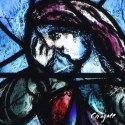
06.19.14 (Sivan 21, 5774) "And he opened his mouth and taught them, saying... 'Blessed are those who mourn, for they shall be comforted' (Matt. 5:4). Mourning is the expression of care, the voice of pain, the sorrow of a broken heart. Those who mourn care deeply; they feel the weight of loss; they grieve over sin. Such sorrow expresses the longing to be released from inner sickness of evil, as Yeshua said: "from within, out of the heart of man, come evil thoughts..." (Mark 7:21). Our own evil desires convict us of the truth... Here there is no place left to hide, no rationalization, no vain hope for self-reformation - just the raw revelation of our fatal condition and the sincere appeal for God's mercy in Yeshua. Mourning over our sins draws us to God, to the Comforter (παράκλητος) who "comes alongside" to bind up the broken heart. The danger remains, however, for those who deny their sin and refuse to mourn, since they are made blind to God's forgiveness and comfort (John 9:41). How shall God be able in heaven to dry up your tears when you haven't wept?
זאת נֶחָמָתִי בְעָנְיִי
כִּי אִמְרָתְךָ חִיָּתְנִי
zot · ne·cha·ma·ti · ve'·on·yi
ki · im·ra·te·kha · chi·yat·ni

"This is my comfort in my affliction,
that your word gives me life."
(Psalm 119:50)

Hebrew Study Card
One of the great tests of our faith is "enduring ourselves" as we learn to love as God loves us... To do so, we must receive the miracle of Jesus... We must look beyond the realm of appearance, where the "outward man" perishes, to the realm of ultimate healing, where the "inward man" is finally liberated from the ravages of sin and death. This is comfort we have in affliction: God's promise revives our hearts to say, "I know that my Redeemer lives, and at the last he will stand upon the earth" (Job 19:25). Even in the "shadow of the valley of death" (i.e., this moribund and broken world), the LORD is with us and comforts us with His Presence (Psalm 23:4). We are given this great promise: "Just as we have borne the image of the man of dust, we shall also bear the image of the man of heaven" (1 Cor. 15:49).
Warfare through Praise...

06.19.14 (Sivan 21, 5774) When you are feeling oppressed or troubled, use the weapon of praise... Satan and the powers of darkness simply cannot stand before someone who is offering up genuine praise to the LORD for their personal deliverance. Especially in times of darkness - when your heart is tested - affirm the unseen reality that God is working all things together for your good (Rom. 8:28). "As you call upon the LORD - who is worthy to be praised - so are you delivered from your enemies."
מְהֻלָּל אֶקְרָא יְהוָה
וּמִן־איְבַי אִוָּשֵׁעַ
me·hul·lal · ek·ra · Adonai
u·min · oy·ye·vai · iv·va·she·a

"I call upon the LORD, who is worthy to be praised,
and I am saved from my enemies"
(Psalm 18:3)

Hebrew Study Card
Calling upon the LORD means more than simply keeping a positive attitude, though having a positive attitude (i.e., hope) and using ayin tovah (the good eye) is part of the arsenal we can use to "fight the good fight of faith." Victory over the dark powers comes through verbally affirming (confessing) your hope in God's Presence and powerful Deliverance given in Yeshua the Savior (Rom. 10:9)... From prison to praise: As you call upon the LORD - who is worthy to be praised - so are you delivered from your enemies.
It is written that the LORD is enthroned among the praises of His people (Psalm 22:3), and therefore offering heartfelt and genuine praise is your direct line to the Divine Presence. Praising the LORD also causes the power of the evil one to be cut off, his eyes blinded, and his malice thwarted... Use the weapon of praise! When Israel went to battle, the shofar was sounded and great cries of praise went up to heaven. "So on they went, ahead of the army chanting, Hodu ladonai, ki leolam chasdo - 'Praise the Lord, for His mercy endureth forever!' And the scripture says, "...when they began to sing and to praise, the LORD set ambushments against the children of Ammon, Moab, and mount Seir, which were come against Judah; and they were smitten" (2 Chron. 20:22). Your victory over darkness is found in praise and hope, even when hope is tested in the midst of the battle.
"Though the fig tree does not blossom, nor fruit be found on the vines, though the produce of the olive fail and the fields yield no food, and though the flock be cut off from the fold and there be no herd in the stalls, yet I will rejoice in the LORD; I will take joy in the God of my salvation" (Hab. 3:17-18). The targum translates "I will rejoice in the LORD" as "I will rejoice in the Word of the LORD." The Source of such joy comes to the heart of faith that sees Elohei Yishi (אֱלהֵי יִשְׁעִי), the "God of my salvation," namely, the One who was and is and is to come (הַהוֶה וְהָיָה וְיָבוֹא) – the LORD our God Yeshua (Rev. 1:4;8; Isa 41:4). Augustine renders Elohei Yishi as "God my Jesus," since "Jesus" (i.e., Yeshua) means YHVH saves. Yeshua is the One who breathed life into the first Adam just as He is the One who breathes eternal life into those who are descended from Him, the great "second Adam."
The Warning of Korah...

06.19.14 (Sivan 21, 5774) Our Torah portion this week centers on the rebellion of Korah, a man who questioned God's authority and arrogantly sought to "intrude" into the office of the priesthood. It is noteworthy that his rebellion is explicitly mentioned only once in the New Testament - in the Book of Jude - as an example of the fate that awaits those false teachers who likewise despise God's law. Unfortunately, Jude's warning is often neglected today, probably because people feel uncomfortable over the prospect of God's judgment. After all, in our "politically correct" age, people have been indoctrinated to regard "tolerance" as the greatest of virtues and "intolerance" (even of evil) as the greatest of vices.... Most unbelievers don't mind hearing the "good news" of God's love, but they take exception when they are confronted with their personal duty to live according to the moral truth revealed in the Torah. False teachers within the church are dangerous because they feed on this sense of discomfort and attempt to rationalize it away. Jude identifies them as spiritual impostors who "work from the inside" to confound or obscure the truth of God. Such a charlatan may appear to be a genuine believer, but their hidden agenda is to sow confusion and sin among God's children. They are proverbial "wolves in sheep's clothing" (Matt. 7:15). Jude's warning is especially important for us to heed in this present hour, because in the time immediately preceding the coming of the Messiah, spiritual deception and unbridled godlessness will greatly increase (2 Tim. 3:1-5).
Note: For more on this very important subject, see "The Message of Jude."
Freedom of Humility...

06.19.14 (Sivan 21, 5774) "Blessed are the meek, for they shall inherit the earth" (Matt. 5:5). Those conscious of their inner poverty, who mourn over their sinful condition, and who are afflicted with themselves, can let go of the need to "manage appearances," to be in control, or to seek validation from others, and therefore they are free to surrender their lives to God's care. They "flow" with the Father's will as a "gentle breeze," no longer resisting or striving, but simply trusting in God's care. When they are wronged, they seek neither revenge nor vindication, but only restoration (1 Pet. 2:23). Paradoxically, it takes strength to be genuinely "lowly of heart," but such is found in the Spirit of God (Zech. 4:6). Indeed, the Spirit leads us to our inheritance: "the meek shall inherit the land and delight themselves in abundant peace" (Psalm 37:11). The fruit of the Spirit is the outgrowth of God's miraculous life with us, and we partake of that life when we live in Yeshua (John 15:1-5; Gal. 5:22-23).
וַעֲנָוִים יִירְשׁוּ־אָרֶץ
וְהִתְעַנְּגוּ עַל־רב שָׁלוֹם
va·a·na·vim · yir·shu-a·retz
ve·hit·a·ne·gu · al-rov · sha·lom

"But the meek shall inherit the land
and shall delight themselves in abundant peace."
(Psalm 37:11)

Yeshua quoted this verse when he said, "Blessed are the meek, for they shall inherit the earth" (Matt. 5:5). The word translated "meek" is πραεις (or πραος), perhaps better rendered as humble or lowly. In the Hebrew text of Psalm 37, the word is anavim (עֲנָוִים), usually translated as "lowly ones" (anavah is the Hebrew word for humility). This word does not suggest weakness, but rather the recognition of one's proper place in the universe before God. It is not self-effacing but rather reality-focused. The meek inherit the earth because they are grounded in the truth of reality...
God "opposes the proud but gives grace to the humble" (James 4:6). The LORD our God dwells with those "of a contrite and lowly spirit, to revive the spirit of the lowly, and to revive the heart of the contrite" (Isa. 57:15). True greatness is found in outside of the self, beyond the instincts of the carnal ego. Those who seek to exalt themselves and to "gain the world" do not understand that the very reason for their life is to be sacrificed for the sake of love. Obeying God's call to love is not a burden, but rather sets the heart free. As Yeshua said, "Come to me, all who labor and are heavy laden, and I will give you rest. Take my yoke upon you, and learn from me, for I am gentle and lowly in heart, and you will find rest for your souls. For my yoke is easy, and my burden is light" (Matt. 11:28-30).
In the Jewish tradition, humility is among the greatest of the virtues, as its opposite, pride (i.e., ga'avah: גַּאֲוָה), is among the worst of the vices. God hates the proud of countenance (Prov. 6:16-17). Therefore Moses is described as the most humble of men: "Now the man Moses was very humble, above all the men that were on the face of the earth" (Num. 12:3), and likewise the great patriarch Abraham confessed to God: "Behold now, I have taken upon me to speak unto the Lord, who am but dust and ashes (עָפָר וָאֵפֶר)" (Gen. 18:27).
"He must increase, but I must decrease" (John 3:30). Our aim should not be personal greatness, but humility. Love personal obscurity; rejoice that you are unnoticed by the world and that you are "poor in spirit." Be happy that you are a stranger and sojourner in this world. How blessed are you when God alone is your chief concern!
The Breath of God...
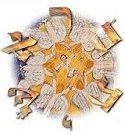
06.18.14 (Sivan 20, 5774) A verse from this week's Torah (Korach) reveals another great Name of God: Elohei ha-ruchot lekhol basar (אֱלהֵי הָרוּחת לְכָל־בָּשָׂר), which can be translated "the God of the breath of all flesh" (Num. 16:22). The LORD is the Source of your breath, the One who exhales to you nishmat chayim (נִשְׁמַת חַיִּים), the "breath of life" that enables you to live (Job 12:10). The sages use the analogy of a glassblower who creates a glass vessel. Just as the glassblower blows into a tube to form a vessel from molten glass, so the breath (i.e., neshamah: נְשָׁמָה) that comes from the LORD functions as spirit (i.e., ruach: רוּחַ) that forms and fills the human soul (i.e., nefesh: נֶפֶשׁ). Note that the Name YHVH (יהוה) first appears in this connection (Gen. 2:7), a Name that means "God is Present" (Exod. 3:14) and "God is Mercy" (Exod. 34:6-7). Note also that each letter of the Name YHVH represents a vowel sound (i.e., breath), suggesting that God's Spirit is as close as your very next breath. Like the wind that cannot be seen, so is the spirit the essential part of your identity. Yeshua breathed on his followers and said, "Receive the Holy Spirit" (John 20:22).
The special Name Elohei ha-ruchot lekhol basar appears only one other place in the Torah. After accepting the fact that he would soon die and therefore be unable to finally lead the people into the promised land, Moses prayed: "Let the LORD (יהוה), "the God of the spirits of all flesh" (אֱלהֵי הָרוּחת לְכָל־בָּשָׂר), appoint a man over the congregation who shall go out before them and come in before them, who shall lead them out and bring them in, that the congregation of the LORD may not be as sheep that have no shepherd." So the LORD said to Moses, "Take Joshua the son of Nun (יְהוֹשֻׁעַ בִּן־נוּן, lit. "son of life"), a man in whom is the Spirit (רוּח), and lay your hand on him" (Num. 27:16-18).
The Talmud notes that the word Nun (נוּן) means "fish," a symbol of activity and life. Joshua, the chosen one who succeeded Moses and led the people into the Promised Land, was the "Son of Life" - a clear picture of Yeshua our Messiah, the "spirit-filled good Shepherd" who would lay down His life for the sheep (John 10:11). The LORD is indeed the "God of the breath of all flesh." When Yeshua cried out, "It is finished" and breathed his last breath as He died for our sins upon the cross, the greatest exhalation of the Spirit occurred, the greatest sigh, the greatest utterance was ever declared. The sacrificial death of Yeshua for our deliverance was God's final word of love breathed out to those who are trusting in Him.
The Projection of Korah...
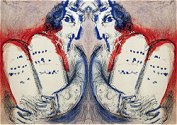
06.18.14 (Sivan 20, 5774) In our Torah reading this week (Korach), Moses' cousin Korah accused Moses of self-aggrandizement and superiority by saying, "Why do you exalt yourself above the assembly of the LORD? ... Is it a small thing that you have brought us up out of a land flowing with milk and honey to kill us in the desert, that you also make yourself a prince over us?" (Num. 16:3,13). The Talmud comments: "One who seeks to disqualify another projects his own defects upon him." Korah's own self-exaltation and vanity led him to suppose that Moses was likewise proud and vain. His envy so twisted his perspective that he saw good as bad and bad as good. For him Egypt was the land "flowing with milk and honey" and Moses - not Pharaoh - was the real tyrant! In this connection the Baal Shem Tov said that other people serve as mirrors, and the defects we see in them reflect our own. Korah needed to see that his envy of Moses was rooted in fear, and that healing would come if he would let go and trust that God was in control of his life.
We can learn from the madness of Korah -- as well as his terrible end... "As you judge another you condemn yourself, for you that judge do the same things" (Rom. 2:1). How you react to another person reveals what is within your own heart, and this provides the opportunity to find healing by doing teshuvah and extending compassion to yourself. When you condemn another you are hurting yourself, after all. It is not a matter of factual truth as much as it is of the truth of hope and love. As we forgive others, so we find our own forgiveness (Luke 6:37), but if we insist on our rights, we find ourselves in hell... Fire offered falsely will be answered by the fire of God's judgment.
Note: For much more on this subject, see "The Madness of Korah."
Pouring out of Heart...

06.17.14 (Sivan 19, 5774) A pious man once complained to the Kotzer Rebbe that it was difficult for him to earn a living. The rebbe counseled him to pray to God to have mercy upon him. The man replied that he didn't think his prayer would avail with the Almighty. The rebbe then said, 'If that is your feeling, then you have a much greater problem than lack of livelihood! You should be more upset that you do not know how to pour your heart out before God!" Indeed our Scriptures teach us to come "boldly" before the Throne of Grace (παρρησίας τῷ θρόνῳ τῆς χάριτος) that we may receive mercy (רַחֲמִים) and find grace (חֶסֶד) to help in time of need" (Heb. 4:16). Note that the Greek word translated "boldly" in this verse (παρρησίας) comes from πᾶς (all) + ῥέω (to utter), suggesting that we can speak freely to God and share everything within our heart without fear or shame.
בִּטְחוּ בוֹ בְכָל־עֵת עָם
שִׁפְכוּ־לְפָנָיו לְבַבְכֶם
אֱלהִים מַחֲסֶה־לָּנוּ סֶלָה
bit·chu · vo · ve·khol-et · am
shif·khu · le·fa·nav · le·vav·khem
E·lo·him · ma·cha·seh-la·nu · se·lah

"Trust in him at all times, O people;
pour out your heart before him;
God is a refuge for us. Selah."
(Psalm 62:8)

Pouring out your heart to God in an honest, transparent, and earnest way is called hitbodedut (הִתְבּוֹדְדוּת). After we "talk our hearts out" before the Lord, in our emptiness we can begin to truly listen, as it says, "In returning and rest you shall be saved; in quietness and in trust shall be your strength" (Isa. 30:15). Only after we sigh deeply and surrender are we receptive to the voice of the Spirit's whisper. "Blessed are all those who wait for Him" (Isa. 30:18). We wait, we abide, even when God takes his time or does not immediately intervene. We do not lose heart, for we find strength when we trust in God's love... The Light of the world still shines: Yeshua, be my inner word, my heart, and my groaning for life today, and forevermore, amen.
Remember the One who poured out his heart for our healing before the Father, in the agony of his passion and in his heart's suffering unto death for our sake... Few words were spoken, but groans, cries, gasps for breath, and the steadfast resolution to offer up the last drop of his blood for our healing and life... Pouring out of heart is not about the words we use, but the fullness of heart being presented: "When you pray, rather let thy heart be without words than thy words be without heart" (Bunyan).
Chiaroscuro and faith...
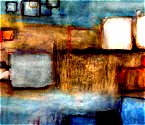
06.17.14 (Sivan 19, 5774) Again we ask: How was it possible for Korah to have rebelled against God by denying Moses' appointment? Blaise Pascal once said, "there is enough light for those who want to believe, and enough shadows to blind those who don't." God does not force the issue of faith upon us, and that implies that we are free to choose hope or despair. Here again the role of the will comes into focus. Human reason can be enlisted to justify our passions: if you don't want to believe (because, for example, you are full of lust, greed, and so on on), then human reason will provide you with an apology; on the other hand, if you want to believe, you will be given enough light to justify that choice as well. "According to your faith it shall be done unto you..."
The Madness of Envy...

[ The following concerns this week's Torah reading, parashat Korach... ]
06.17.14 (Sivan 19, 5774) The sages asked how it was possible that Korah could have seriously questioned Moses' role as God's appointed leader, and they answered that he became jealous because his cousin was chosen to be the chief of the Levites instead of him. Korah's envy so possessed him that he impugned Moses' leadership, even though he directly witnessed how Moses had miraculously delivered the Israelites from Egypt by the power of the LORD. Such is the terrible, blinding power of envy, a force that is said to "remove a person from the world" (Avot 4:28) into a realm of grandiosity, delusional thinking, and even insanity. Envy derives from the secret fear that you are inadequate, invisible, and unworthy of love, and therefore it often "overcompensates" as preening grandiosity. This explains the psychological "need" to be better than others – making comparisons that alienate and cause suffering. Everyone wants to feel chosen, special, and unique, though God's love is never expressed at the expense of others... "By the grace of God I am what I am" (1 Cor. 15:10). When you begin to understand that God loves you with an everlasting love (אַהֲבַת עוֹלָם), you will no longer want to compare yourself to others...
Courage and Humility...

[ The following concerns this week's Torah reading, parashat Korach... ]
06.16.14 (Sivan 18, 5774) When Korah asked, "Why then do you exalt yourselves above the assembly of the LORD," Moses "heard it and fell on his face" (Num. 16:3). The sages comment that Moses' first thought was that perhaps Korah was sent by God to deliver a rebuke - that Moses was indeed guilty of vanity – and therefore he immediately fell on his face and began searching his own heart... In the face of criticism, Moses did not seek to defend or justify himself but instead looked within himself to ensure that his heart and his way was right before the LORD...
How do you react when you are criticized or rebuked? Do you seek to defend yourself or blame the other person for the same failure? The moment you sense pride taking hold of your heart, stop and turn to God. Even if you must turn 70 x 7 times, there is hope, since even the desire of "being willing to do God's will" refines the heart. It is far better to be repeatedly turning to God in brokenness than it is to live under the pretense that you have no need for ongoing deliverance. It has been wisely said that "you cannot widen the narrow way of surrender." Religious leaders are perhaps most at risk here, since often enough they fool themselves into believing that passionate commitment requires they know everything about God, or that they are walking in joy and victory, when the truth is that they are often lonely, hurting, and sometimes unsure of themselves...
I wonder why people are afraid to admit they don't know something, or that they are confused, or sad, or troubled, etc. Any religion that demands its adherents to always be "up" and is simply untrue to the human condition. Reread the Psalms or consider the dark walk of faith that many of our forefathers and foremothers underwent. God wants all our hearts, chaverim, not just the parts we think he wants.... "By the grace of God I am what I am" (χάριτι δὲ θεοῦ εἰμι ὅ εἰμι). "Face the facts of being what you are, for that is what changes what you are" (Kierkegaard).
What We Really Need...

06.16.14 (Sivan 18, 5774) "Your heavenly Father knows what you need before you ask him" (Matt. 6:8). We sometimes pray for what we think we need but overlook what we really need. For instance, we may pray for health, material blessing, and opportunity, but what we really need is the ability to trust, the willingness to surrender our lives to God without qualification, and the grace to see the good in others and not their faults. These needs are just as real as our need for food and clothing, since apart from grace to extend empathy and love toward others, we will never be truly happy. Love "overlooks" a multitude of sins; it looks beyond the present moment to see with compassion, of kindness, of empathy... What we really need, then, is to be after God's own heart, to see other people as God sees them, and to overlook matters that offend or feed our sense of pride. This is what we truly need, and therefore we trust that the Lord our God mercifully "decodes" our apparent petitions to express what the Spirit of God groans on our behalf (Rom. 8:26).
כִּי־עָנִי וְאֶבְיוֹן אָנכִי
וְלִבִּי חָלַל בְּקִרְבִּי
ki · a·ni · ve·ev·yon · a·no·khi
ve·lib·bi · chal·lal · be·kir·bi

"For I am poor and needy,
and my heart is stricken within me."
(Psalm 109:22)

The word translated as "stricken" is challal (חָלַל), meaning "wounded, pierced, polluted, defiled, or brokenhearted." This is the condition of heart that is prerequisite for doing real business with heaven. "God has not been trying an experiment on my faith or love in order to find out their quality. He knew it already. It was I who didn't. In this trial He makes us occupy the dock, the witness box, and the bench all at once. He always knew that my temple was a house of cards. His only way of making me realize the fact was to knock it down.... I need Christ, not something that resembles Him." (C.S. Lewis: A Grief Observed)
Chief Seats at Synagogue...
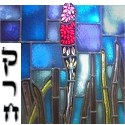
[ The following entry concerns this week's Torah reading, parashat Korach. Please read the Torah portion to "find your place" here. ]
06.16.14 (Sivan 18, 5774) Our Torah this week begins, "And Korah took" (וַיִּקַּח קרַח), which immediately suggests something about the character of the man. Though he was wealthy, esteemed among his tribe, and honored with the task of caring for the Ark of the Covenant, none of this was enough for Korah... There was an insatiable hunger, a "black hole" in his soul, an unrelenting envy, that drove him to madness and self-destruction. Korah was imprisoned by his own jealousy, arrogance, and spite. When he compared himself to Moses and Aaron, he felt overlooked, deprived, and therefore he justified in his desire to be honored. As an archetypal figure, Korach warns us against being swallowed up with egotistical envy or seeking the praises of men (Matt. 23:6-7). In the Kingdom of heaven, worldly success is sheer delusion. There are open and hidden riches. There is a pearl of great price, a treasure "hidden in a field." These riches are regarded as "fool's gold" to those who love this world and trust only in the realm of the phenomenal, but to those who trust in the LORD, they represent all that the heart needs...
The son of Zoma said: "Who is wise? He who learns from all people, as it is said: 'From all those who taught me I gained understanding' (Psalm 119:99). Who is strong? He who conquers his evil inclination, as it is said: 'Better is one slow to anger than a strong man, and one who rules over his spirit than a conqueror of a city' (Prov. 16:32). Who is rich? He who is satisfied with his lot, as it is said: 'When you eat the toil of your hands you are fortunate and it is good for you' (Psalm 128:2). 'You are fortunate' - in this world; 'and it is good for you' - in the World to Come. Who is honored? He who honors others, as it is said: 'For those who honor Me will I honor, and those who scorn Me will be degraded'" (1 Sam. 2:30). – Avot 4:1
Note: For more on this topic, see the article, "The Madness of Korah."
Seeking Inner Peace...
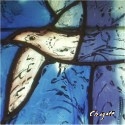
06.16.14 (Sivan 18, 5774) The Hebrew word for peace is shalom (שׁלוֹם), a word that means "wholeness," "completeness," "well-being," and "healing" -- not merely the absence of strife. People often fight with others because they are not made whole within themselves. Just as we cannot really love others until we first learn to love ourselves, so we cannot have peace with others until we first find our own inner healing and peace. Often this means learning to forgive both ourselves and others (including God) so that we can let go of whatever troubles our heart. As we accept ourselves and let go of our fear, we learn to accept others and give up the need to defend ourselves. As Yeshua said, "Blessed (happy) are the peacemakers, for they shall be called the children of God."
אַשְׁרֵי עשֵׂי שָׁלוֹם
כִּי בְּנֵי־אֱלהִים יִקָּרְאוּ
ash·rei · o·sei · sha·lom
ki · be·nei · E·lo·him · yi·ka·re·u

"Blessed are the peacemakers,
for they shall be called the children of God."
(Matt. 5:9)

Note the Greek word translated as "peacemakers" (εἰρηνοποιοί) can also mean "those who love peace," that is, those who long for peace and pursue it (see Psalm 34:14). In Jewish ethical teaching, seeking peace is called redifat shalom (רְדִיפַת שָׁלוֹם) and is considered a primary heart quality. Rabbi Hillel is attributed as saying, "Be of the disciples of Aaron, loving peace and pursuing peace" (Pirke Avot 1:2). Of course "you can't give away what you don't have," so before we can hope to make peace among others, we must sincerely seek inner peace within our own hearts...
Peace is the foundation of God's great work of deliverance in our lives. Yeshua is called Sar Shalom (שַׂר־שָׁלוֹם), the "Prince of Peace" (Isa. 9:6), since salvation brings reconciliation (i.e., peace) between God and man (Rom. 5:1) and sets us free from the fear of condemnation. When we walk in the peace of God (שְׁלוֹם הָאֱלהִים) that "surpasses all our understanding," we are empowered to be a blessing to others in your life. "The fruit of righteousness is sown in peace by those who make peace" (James 3:18).
The Rebellion of Korah...

[ The following entry concerns this week's Torah reading, parashat Korach. Please read the Torah portion to "find your place" here. ]
06.15.14 (Sivan 17, 5774) Last week's Torah portion (Shelach) told the tragic story about the "sin of the spies" and the divine decree that the generation rescued from Egypt was sentenced to die in the exile of the desert. In this week's portion (Korach), the hard truth of their condition began to sink in, and the people bemoaned their fate and rebelled further by attempting to overthrow God's designated leadership and return to Egypt. This rebellion was instigated and organized by Moses' cousin Korach, who – along with a band of co-conspirators – was swiftly judged and put to death, thereby vindicating the Aaronic priesthood and Moses' leadership of Israel.
Korach was the cousin of Moses and a well-respected Kohathite who was honored to be one of the carriers of the Holy Ark. He was a wealthy man of influence - a nassi (prince) of the people. Despite all this privilege, however, Korach rationalized that he should be the head of the Kohathite clan (instead of his cousin Elzaphan), since he was the firstborn of Kohath's second son, whereas Elzaphan was not even a firstborn son. Indeed, because he felt slighted by Moses' choice, Korach went even further and brazenly questioned whether the office of the High Priest should not have been given to him – rather than to Aaron.
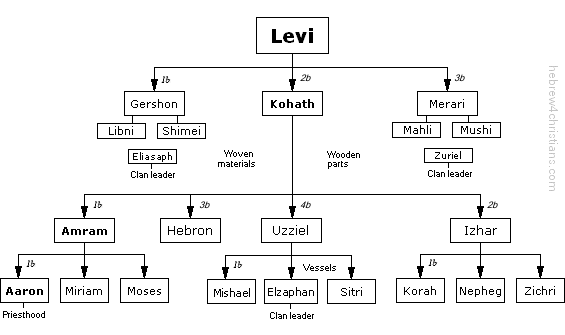 |
Korach's co-conspirators were two brothers named Dathan and Abiram from the tribe of Reuben, Israel's firstborn son. Together, they put together a force of 250 men to confront Moses and to challenge his exclusive claim to leadership: "You have gone too far! For all in the congregation are holy, every one of them, and the LORD is among them. Why then do you exalt yourselves above the assembly of the LORD?"
In response to their challenge, Moses proposed that Korach and his followers bring firepans to offer incense at the Tabernacle to determine whether they were indeed chosen to serve as priests. The following morning, when Korach and his 250 followers assembled at the gate of the Tabernacle to offer incense, God threatened to destroy them all instantly. Moses begged God not to destroy all the people, but only the rebels. He then warned the congregation to stand clear of the dwellings of Korach, Dathan, and Abiram. The earth then opened up and swallowed them alive, and a fire consumed the 250 men who illegitimately offered the incense...
Korach's rebellion introduced outright mutiny and chaos within the leadership of the camp that brought swift and terrible rebuke from the LORD. Nevertheless, the very next day the entire congregation of Israel audaciously began to accuse Moses and Aaron, saying: "You have killed the people of the Lord." When the people looked toward the Tabernacle, however, the Glory of the LORD appeared, where God descended to tell Moses and Aaron that he was going to destroy the Israelites for their treason. Despite Moses and Aaron's fervent intercession, however, a deadly plague broke out among the people. Moses then instructed Aaron to take his firepan with incense and to bring it in the midst of the congregation to make atonement for them. Aaron did so, "and he stood between the dead and the living; and the plague was stayed." The Torah tells us that 14,700 Israelites died because of the plague, not including the deaths of those involved in the rebellion of Korach.
As a final test to vindicate Aaron as God's chosen priest, each of the twelve tribal heads of Israel, as well as Aaron himself, were instructed to bring their staffs to Moses. Moses then inscribed their names on each staff and brought them into the sanctuary before the ark of the testimony. "And the staff of the man whom I choose shall sprout. Thus I will make to cease from me the grumblings of the people of Israel, which they grumble against you." The following day Moses went into the Tabernacle and "behold, the staff of Aaron for the house of Levi had sprouted and put forth buds and produced blossoms, and it bore ripe almonds." He then brought out all the staffs and gave them back to each of the tribal leaders. The LORD then told Moses to return Aaron's staff to the Tabernacle as a testimony for generations to come.
After all this transpired, the people began to dread the Presence of the LORD and the Tabernacle. To allay their fears, Moses gave them assurance that the sons of Aaron (i.e., the priests) and the Levites alone would bear responsibility for the sanctuary. But since the Levites and priests would receive no portion in the Promised Land, the people were instructed to generously support them by means of various gifts that are listed at the end of the Torah reading.
Made Captive to Hope...

06.13.14 (Sivan 15, 5774) An old Jewish prayer, uttered somewhat wistfully, begins, "O Lord, I know that Thou wilt help us; but wilt Thou help us before Thou wilt help us?" It's not always easy to wait for God, especially when we are in pain or anxiety, but we must never, ever, give up; we must never forget the promise and reality of our ultimate healing in Yeshua. Faith expresses hope in the Reality, Substance, and Being (ὑπόστασις) of the Invisible and is made captive to undying hope (Heb. 11:1). Each of us is still upon the "Potter's wheel," though we keep faith that God is molding us and shaping us to reach our true end... "Blessed are you, LORD our God, King of the Universe, who walks with the wounded" (שֶׁהוֹלֵךְ עִם הַפְצוּעִים). Amen. "Blessed art You, LORD our God, King of the universe, who makes us captives of hope." Shabbat shalom, friends...
Testing the Spirits...

06.13.14 (Sivan 15, 5774) Because false teachers abound in the world, each of us is obligated to test (δοκιμάζω, lit. "determine if a metal is pure") doctrine to see if it accords with the truth (1 John 2:27, 4:1). We must test people's truth claims, especially those religious leaders who purport to be speaking on behalf of the Living God.... When confronted by false teaching, we are called to "earnestly contend for" (ἐπαγωνίζομαι, lit. "wrestle over") the truth of the faith (Jude 1:3). That's the proper response to untruth. On the other hand, we are commanded to "always be ready" to provide a reason (λόγος) for the hope that is within us (1 Pet. 3:5). That's the call to be a witness to the truth...
We are explicitly commanded to ask God for heavenly wisdom (James 1:5), though this is "not a wisdom of this age or of the rulers of this age, who are doomed to pass away" (1 Cor. 2:6-7). Indeed, the gospel message itself is called the power and wisdom of God (1 Cor. 1:21-24). Disciples of Yeshua are to have the "mind of the Messiah" (1 Cor. 2:16). We can guard against false teachers by using discernment to test their spirits, but we can only be equipped to do so if we "build ourselves up in the most holy faith" (Jude 1:20). We build ourselves up by carefully studying the word of God so that we will be able to accurately wield the Sword of the Spirit (2 Tim. 2:15-16, 2 Pet. 1:19-20). In order to grow, we must have "good soil" for the seed of the word to take root. We "get rooted by knowing the roots" of our faith! Studying the Scriptures and praying in the Holy Spirit keeps us securely in the love of God as we wait for the mercy of Yeshua who gives us eternal life (Jude 1:21).
As I've written about elsewhere, we are responsible to walk in the Spirit of truth and to reject what is false (1 John 4:6). This implies that we have a moral and spiritual duty to think clearly and not abuse our minds (Phil. 4:8; Rom. 12:2). God Himself helps us to do this: "I will ask the Father, and he will give you another Helper (παράκλητος, someone "called to one's side"), to be with you forever, even the Spirit of Truth (רוּחַ הָאֱמֶת), whom the world cannot receive, because it neither sees him nor knows him" (John 14:16-17). God gives us the Spirit of Truth so that we can know the truth about His salvation and to "discern what is the will of God, what is good, acceptable, and perfect" (Rom. 12:2).
Whenever we encounter other ministries, there are some practical things we can do to guard ourselves from being deceived. There are several questions we can ask those who claim they are teaching the truth of God. The first we should ask - and the one that precedes all others - is who does the teacher (or denomination, ministry, etc.) say that Yeshua is (Matt. 16:15)? Is the glory of Yeshua the focus, or is something else? The role of the Holy Spirit is to glorify the Messiah, God's Son (John 16:14), so if He is not being honored and esteemed as the LORD of Glory, then that is a "red flag" regarding the ministry in question. Test to see if the teacher (or ministry or denomination) unequivocally and unashamedly confesses that Yeshua is the LORD (יהוה), the very Creator who became flesh, the only way to eternal life, and the Savior of the world (John 1:1,14). Unlike some religious leaders today who are embarassed over the exclusive claims of the gospel, it is vital to realize that God is not an "inclusivist" who winks at truth and thinks its okay to worship anything, so long as the will is good and the heart is sincere... No, there is salvation in no other than Yeshua, and those who waffle on this point are deceivers who betray God's salvation. "Those who honor the Son are the ones who honor the Father" (John 5:23); and, "whoever hates the Son hates the Father also" (John 15:23). Even the most brilliant Torah scholar (or "pope" or other "Christian" leader) is in spiritual darkness if he or she denies the truth that Yeshua is the "only wise God our Savior" (Jude 1:25; 1 Tim. 1:17). So ask yourself: Do these ministries teach that Yeshua is the Creator, Sustainer, and LORD of all reality? Is Yeshua honored as the Holy One of Israel, the King of Israel, the Redeemer and only Savior of the world? Is Yeshua recognized as the Judge of the living and the dead, to whom every knee shall one day bow as Sovereign LORD?
Second, does the teacher in question advocate some sort of "special name" for God other than (or over and above) the name of Yeshua? Are they part of the "Sacred Name" movement (i.e., cult)? Do they openly confess that Yeshua is the "Name above all Names" (Phil. 2:9-11), or do they waffle on this question and focus instead on the name YHVH? Do they spend an exorbitant amount of time and energy on the phonetics of the name of God, offering permutations or linguistic variations while overlooking the fact that the Name refers to Something beyond the merely linguistic? Do they disdain the name Jesus or ridicule Christians who use the name "Christ," regarding them as "pagan" or "Gentile"? Do they attempt to impress you with the secret meaning of Hebrew words and spurious intellectualism? Do they suggest that Christian theology is inherently suspect? Do they mock the idea of the Trinity as incoherent or unbiblical? Do they miss the point of God's revelation by taking the Name of the LORD in vain?
"I, I am the LORD (יְהוָה), and besides me there is no Savior (מוֹשִׁיעַ). For I am the LORD your God, the Holy One of Israel, your Savior. This is what the LORD, Israel's king and His Redeemer, the LORD of Hosts (יְהוָה צְבָאוֹת) says: "I am the first and I am the last, there is no God but me." "For to us a child is born, to us a son is given; and the government shall be upon his shoulder, and his name shall be called Wonderful Counselor, Mighty God, Everlasting Father, Prince of Peace." (Isa 43:3, 11, 44:6; cp. Jude 1:25, Rev. 1:17; 22:13; Isa. 48:12; 9:6).
Note: To continue reading, click here...
Seeing with Heart...

06.13.14 (Sivan 15, 5774) "We walk by faith, not by sight." This is true for all people, since every soul lives by faith of some kind or another. Our Torah portion this week (Shelach) begins with the episode of the spies and concludes with the warning not to "spy after your heart and after your eyes" (Num. 15:39). The Torah mentions the heart first and then the eyes to indicate that the eyes follow the heart. We see as we believe with our heart: "According to your faith be it done unto you." When the spies said, "We are not able to go up (לא נוּכַל לַעֲלוֹת)... for they are stronger than us" (Num. 13:31), they revealed their unwillingness to believe in God's promise, or, to put it another way, they revealed their faith in God's inability to deliver on his word.... Indeed, the Hebrew word for "than us" (מִמֶּנּוּ) can also mean "than Him," suggesting that the spies believed that even God would be unable to uproot the Canaanites. According to their faith, so it was done; by believing that it was impossible, they lost the possibility of God's promise...
Faith sees what is possible and refuses to yield to the artificiality of mere appearance. Indeed, appearances are often a test of our courage. We may never know how often a test was given and - just before victory was manifest - the heart grew faint and was lost to fear. "According to your faith be it done to you" is a spiritual principle that applies to everyone. In that sense, it is not that we have faith that matters (since we all have faith of some kind), but whether our faith is grounded in the promises and power of the LORD God of Israel...
אָמַרְתְּ לַיהוָה אֲדנָי אָתָּה
טוֹבָתִי בַּל־עָלֶיךָ
a·mart · la·do·nai: · A·do·nai · at·tah
tov·va·ti · bal - a·ley·kha

"I say to the LORD, "You are my Lord;
I have no good apart from you."
(Psalm 16:2)

Hebrew Study Card
Love's Fear and Trembling...

06.13.14 (Sivan 15, 5774) The gospel reveals God's passion for us, the call of his heart, his desire to elevate us to the role of the beloved, and we respond by accepting Him as the great Lover of our souls, the ultimate concern of our life. Sin threatens to seduce us away from God's love, to interfere with our relationship, which evokes God's "jealousy" to protect love from loss. It is written that "perfect love casts out fear" (1 John 4:18), but perfect love (τελεία ἀγάπη) must be "perfect," that is, reciprocal, complete, consummated, and alive with passion. In Hebrew, perfect love is "shalem" - that is, whole, healed, and unified (אַהֲבָה שְׁלֵמָה). Perfect love is both given and received... It is not "perfect love" to objectively accept that God loves you in Jesus. No, you must receive this as an inward passion, you must live within it, must embrace it, take possession of it, and let it fill your heart to abundance. This love, this "perfect love," then will cast away your fear of being unwanted, rejected, and abandoned. But to know this love, you have to open your heart and accept it as your own, the essential reality of who you are:
אֲנִי לְדוֹדִי וְעָלַי תְּשׁוּקָתוֹ
a·ni · le·do·di · ve·a·lai · te·shu·ka·to

"I am my beloved's, and his desire is for me"
(Song 7:10)

I realize the analogy of God as the great "Lover of our Souls" is ideal for most of us, and yet how important it is that we understand ourselves as the "beloved...."
Joshua and Jesus...
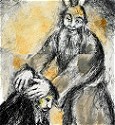
[ The following is related to this week's Torah reading, parashat Shelach... ]
06.13.14 (Sivan 15, 5774) Before sending out the leaders of the tribes to spy out the land, Moses renamed his trusted servant Hoshea (הוֹשֵׁעַ) to Yehoshua (יְהוֹשֻׁעַ), appending the letter Yod (י) to make his name begin with a divine prefixive (יָהּ־). The Talmud (Sotah 34b) states that Moses foresaw the treachery and faithlessness of the spies and appended the Yod to remind Hoshea that YHVH (יהוה) must come first. This renaming of Hoshea, however, was certainly prophetic, since Joshua was chosen to be the successor of Moses who would finally lead the people into the promised land. Notice that the name Yehoshua (i.e., Joshua) and Yeshua (i.e., Jesus) come from the same root (i.e., yasha: ישׁע) meaning "salvation" or deliverance (in the Greek LXX, Joshua is spelled Ιησους, the same spelling for Jesus in the New Testament). Indeed, in the Book of Nehemiah, Yehoshua is explicitly called Yeshua (יֵשׁוּעַ), the name often transliterated as "Jesus" (Neh. 8:17).
There are a number of similarities between Joshua and Jesus given in the Torah. For example, Joshua was a descendent of Joseph from Ephraim (lit., "double fruit"), and Yeshua came as Messiah ben Yosef, the "son of Joseph" who would come from Bethlehem of Ephrata (אֶפְרָתָה), a term that also means "fruifulness." Joshua was Moses' faithful companion at Sinai (Exod. 24:13) and overseer of the "Tent of Meeting" (אהל מועד), taking every opportunity to be near God's presence (Exod. 33:11). He was a capable commander of the armies of Israel who regularly routed the enemy in battle (Exod. 17:9, etc.). Joshua was truly humble and of impeccable moral character, a true servant of Israel filled with Holy Spirit of God (Num. 27:18). Therefore both Joshua and Yeshua loved God's house (Exod. 33:11; Luke 2:49), both were faithful leaders of Israel (Deut. 1:37-38; Matt. 2:6); and both were directly ordained by God. Moreover, Joshua was tested and found steadfast in his faith (Num. 32:12); he was willing to be "despised and rejected of men" rather than appease the mob, just as was Yeshua. Both Joshua and Yeshua appointed 12 men (Josh. 4:4; Mark 3:16-19); both led the people of God to the Promised Land and engaged in warfare for the Kingdom of Heaven; both performed various miracles; both allotted the inheritance of the LORD to God's people (Deut. 1:38, 3:28), both circumcised the people (Joshua at Gilgal; Yeshua in the Spirit); both married Gentile brides (Joshua is said to have married Rahab, Yeshua married the faithful of the nations), both signified salvation by means of the "scarlet cord," and so on. Moses was the "lawgiver" of Israel who was unable to give rest (salvation) to Israel; that honor was given to Joshua, who brought the people into the promised land after Moses had died on Mount Nebo (see Rom. 7:1-4).
Joshua's full name was "Joshua the son of Nun" (יְהוֹשֻׁעַ בִּן־נוּן). The Talmud notes that the word Nun (נוּן) means "fish," a symbol of activity and life. The first mention of the word is found in Exodus 33:11 in reference to Yehoshua. One application here is to note that Yehoshua, the one who succeeded Moses and was able to enter the Promised Land, was the "Son of Life" - a clear picture of Yeshua our Messiah, blessed be He...
A midrash says that when Yehoshua was born, no one took note, but when he died, all of Israel took note. Nonetheless, the Israelites did not mourn for him properly. One was busy with his vineyard, the other with his field, yet another with his coal. "The Holy One, Blessed be He, therefore sought to make the whole world quake" (Midrash Shmuel 23:7). This is also an apt description of Yeshua as Mashiach ben Yosef, the Suffering Servant, whose birth went unnoticed, but His death and resurrection indeed shook the world!
Affirming your Faith...

[ Since our Torah portion this week (Shelach) recounts the terrible consequences of unbelief, I thought it would be good for us to take a moment to reaffirm our faith in Jesus... ]
06.12.14 (Sivan 14, 5774) "Not everyone who says to me, 'Lord, Lord,' will enter the kingdom of heaven, but the one who does the will of my Father who is in heaven. On that day many will say to me, 'Lord, Lord, did we not prophesy in your name, and cast out demons in your name, and do many mighty works in your name?' And then will I declare to them, 'I never knew you; depart from me, you workers of lawlessness'" (Matt. 7:21-23). Despite the practice and profession of their faith, these people were strangers to God... They had a false sense of assurance, believing that they were "serving God" while they really were not... So the essential question here is whether Yeshua truly knows you. You may know a lot about God, religion, spirituality, and yet you may remain unknown by him... Where do you find life? What are you loving? Where are you going?
"Not everyone who says to me, 'Lord, Lord,' will enter the kingdom of heaven, but the one who does the will of my Father who is in heaven" (Matt. 7:21). Yet what is the will of the Father but to trust in Messiah for life (John 6:40)? "What must we do, to be doing the works of God?" Yeshua answers: "This is the work of God, that you believe in the One whom he has sent" (John 6:28-29). The Torah of God centers on trusting the Messiah (Titus 3:5-7).
On that day many will say to me, 'Lord, Lord, did we not ... do many mighty works in your name?' And then will I say to them, 'I never knew you; depart from me, you workers of lawlessness' (Matt. 7:22-23). From this we see that good works - even those done in the name of Messiah - are insufficient for life, and that something more is needed... That "something more" is the reality of relationship with him. However, even Yeshua's sacrifice on the cross can't bring you into relationship with him apart from receiving it (i.e., believing it) for your healing... By faith you encounter Yeshua clothed in your flesh, your sin, and suffering death for you. "As long as Christ remains outside of us we are separated from him."
Some people feel frightened when they consider all this, but fear arises only if we miss the point... Good works can't save you, even those performed in the Savior's name... What saves you is trusting in God's great love for your life: "This is the work of God, to trust in the One whom God has sent [for you]" (John 6:28-29). Genuine salvation is "from the LORD," that is, comes as a result of his loving intervention on your behalf (Titus 3:5-7; Eph. 2:8-10). This is the will of the Father, the true Torah (התורה האמת) of God, namely, to honor the Messiah and know him by faith... Trust him for eternal life, believe that he bears your sins, seek to know his heart, share your hopes and fears with him. It is lawlessness to reject the Torah of the LORD that commands us to follow Messiah and know him in all our ways - including the ways of our struggles, our fears, and so on... Each of us must wrestle alone, in the dark places of fear, to find our new name from God (Gen. 32:24). Is the blessing for you or not? The essential thing is to know (and more importantly) to be known by Yeshua.... It is a matter of trust, of sharing your heart, being real with him, walking with him, loving him... "This is the work of God, to believe in the One whom God has sent [for you]." Trusting God means accepting that you are loved (and safe) because of who God is.
The gospel is "the power of God for salvation to everyone who believes, to the Jew first and also to the Greek" (Rom. 1:16). It is a miracle of being in a right relationship with God. We are pursued by his love, and he haunts us until we surrender to his will... Like Jonah we first must be "swallowed up" in consciousness of our own rebellion before we realize we are undone, that we are without remedy apart from God's intervention and deliverance. We start there - in the "belly of the fish" - and later are resurrected to go forth by God's mercy and grace. As we look to Yeshua, as we lean on him, he reveals more of himself to us. He gives us the grace and strength we need; he is always enough...
Whether Yeshua is living in you (and you are living in Him) is the most important question of your life upon which everything else turns. The great mystery is "Christ in you, the hope of glory" (Col. 1:27). As Ravenhill once said, "I don't ask people if they're saved anymore; I look them straight in the eye and say, "Does Christ live inside you?" Indeed, He is present right now -- for you -- in this very moment... Are you connected with Him in the truth? Are you drawing life from His life? Do you really live in Yeshua? "God is making his appeal through us. We implore you on behalf of Messiah, be reconciled to God" (2 Cor. 5:20).
Each of us must wrestle alone, in the dark places of fear, to receive our new name from God (see Gen. 32:24). Again I ask: Is the blessing for you or not? Are you willing to be loved and accepted by him? What is your name? What do you call yourself? You cannot know God apart from his love, yet for some people that is exactly where the struggle lies... Look within your heart; test yourself; do you believe God cares for you? Take hold of the promise and do not let go until you know who you are in his love. "To the one who conquers I will give some of the hidden manna, and I will give him a white stone, with a new name written on the stone that no one knows except the one who receives it" (Rev. 2:17).
Repeat these affirmations of faith:
The blessing is there for you, though you might need to wrestle in faith to fully take hold of your identity in Messiah. May God help you answer to the new name he calls out to you...
Love Believes all things...

06.12.14 (Sivan 14, 5774) "I would have fainted unless I believed to see the goodness of the LORD..." (Psalm 27:13). Faith is therefore self-authenticating: as you trust in the good, the good will be revealed. As Yeshua said, "According to your faith be it done unto you" (Matt. 9:29). And if it is faith that makes you whole, then its lack makes you sick... As you doubt, so you will lose sight of what is real, true, and abiding. Being cynical is cowardly: "There are two ways to be fooled. One is to believe what isn't true; the other is to refuse to believe what is true" (Kierkegaard). A cynic refuses the possibility of truth because he is afraid of being fooled, and for this fear he willingly closes his eyes to the good. "Believe that life is worth living, and your belief will help create the fact" (William James). When we trust God's promises, we affirm an unseen good even if the present hour is shrouded in darkness. Faith sees beyond "the seen" to the unseen (2 Cor. 4:18). The "seen" is not ultimately real, and consequently faith is exiled from the vanity of the present hour. Therefore affirm your faith, friend. Refuse the darkness of fear by choosing to believe in the reality of God's love for your soul, despite the mess you've made of your life. Affirm that God's love is more real, more substantive, and more valuable than anything disclosed in this world that fades away.
Honesty and Faith..
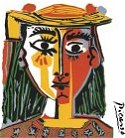
[ The following is related to this week's Torah reading, parashat Shelach... ]
06.12.14 (Sivan 14, 5774) In our Torah for this week (Shelach) the LORD said to Moses, "Send for yourself (שְׁלַח־לְךָ) men to spy out the land" (Num. 13:2), which the sages interpreted to mean that it was not God's decision to send the spies, and indeed later we learn that it was the people who had persuaded Moses to send the scouts ahead: "Then all of you came near me and said, 'Let us send men before us, that they may explore the land for us and bring us word again of the way by which we must go up and the cities into which we shall come.' The thing seemed good to me, and I took twelve men from you, one man from each tribe" (Deut. 1:22-23). Moses approved the people's request because he (mistakenly) believed they were sincere in their desire to discover the best way to ascend to the land. The people were dishonest with themselves, however, and merely pretended to be concerned about logistics and strategy. Their real motive was not to discover the way of ascent, but rather to discover whether God could be trusted... Had the people been honest with themselves, confessing their fear, they might have found opportunity to repent, but because they denied the truth and hid it from themselves, they were unable to go forward. Without honesty faith is impossible. As Kierkegaard said, "No person is saved except by grace; but there is one sin that makes grace impossible, and that is dishonesty; and there is one thing God must forever and unconditionally require, and that is honesty."
Faith in an Unseen Good...
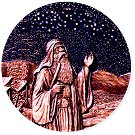
[ The following is related to this week's Torah reading, parashat Shelach... ]
06.11.14 (Sivan 13, 5774) The fear of the unknown can seduce us into preferring a present misery to the hope of a promised future good... Without faith, new situations can invoke fear and negativity within us. God calls us to ascend to the land, to venture out, and to believe in his promises for life and blessing. So do not yield to the temptation to despair; believe in the a presently unseen good (Rom. 8:24; 2 Cor. 4:18). Though our Torah portion this week warns us about the terrible sin of unbelief (Israel's unpardonable sin), we trust that "God is able to make all grace overflow (περισσεύω) to you, so that having all sufficiency in all things at all times, you may overflow (περισσεύω) in every good work" (2 Cor. 9:8). "Fear not, little flock, for it is your Father's good pleasure to give you the kingdom" (Luke 12:32).
אַל־תִּירָא כִּי עִמְּךָ־אָנִי אַל־תִּשְׁתָּע כִּי־אֲנִי אֱלהֶיךָ
אִמַּצְתִּיךָ אַף־עֲזַרְתִּיךָ אַף־תְּמַכְתִּיךָ בִּימִין צִדְקִי
al ti·ra ki im·me·kha a·ni; al tish·ta ki a·ni E·lo·he·kha
im·matz·ti·kha af a·zar·ti·kha, af te·makh·ti·kha bi·min tzid·ki

"Fear not, for I am with you; be not dismayed, for I am your God;
I will strengthen you, I will help you,
I will uphold you with my righteous right hand."
(Isa. 41:10)

Download Study Card
Small in our Eyes...
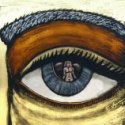
[ The following is related to this week's Torah reading, parashat Shelach... ]
06.10.14 (Sivan 12, 5774) "We became like grasshoppers in our own sight, and so we were in their sight" (Num. 13:33). The sages here note that the spies projected their insecurity onto others, believing that how they saw themselves was how they really were, and this fear affected their trust in God... Sadly, low self-esteem often becomes a self-fulfilling prophecy, since when you feel unworthy, unlovable, incapable, etc., you will find "evidence" of your feelings by suspiciously interpreting the thoughts and actions of others. Because of this danger, we have a moral and spiritual duty not to allow our emotions to overwhelm our intellect. You may struggle with low self-esteem, but you are nonetheless obligated to accept the truth of your significance as a child of God. In order to trust God, you must believe that you are valuable to him and that he desires relationship with you. God redeemed you so you could know and love Him. In this connection it is important to notice that the spies said, "we were in our eyes like grasshoppers." They felt small because they had forgotten the reason for their redemption - they had forgotten their identity as God's sons. Their lack of self-respect made them feel unworthy of the inheritance. The sin of the spies was not just that they doubted they could overcome the "giants in the land," but rather that they were worthy people in God's eyes... Sadly the spies view of themselves was more real to them than God's view of them, and that is why they added, "and so we were (like grasshoppers) in their eyes." The lesson here is that you cannot allow feelings of self-contempt overrule the truth of God's salvation of your soul. You are infinitely valuable, worthy, and capable because God says you are, even if you do not feel that way at the present moment.
So you must begin with the fact that God created you in His image and therefore you are of infinite value. You matter to God - and therefore you must respect yourself. It is no mark of holiness to shame or belittle yourself - notwithstanding your sinful nature - since you have a duty to honor yourself as one of God's created children. Dishonoring yourself violates the central ethical commandment of the Torah: "You shall love your neighbor as yourself" (Lev. 19:18). How can you respect others if you don't respect yourself? You will regard yourself as "insect like" and will tend to view others as "gigantic" threats; you will act defensively and walk in fear of other people.... This is the path of a person living in a prison of fear, and it is a type of hell. Trusting in God's personal love for you presupposes that you are worthy to be loved and that there is a divine inheritance for you. This gives you real courage to go take possession of the land as its rightful heir. Trusting in God means regarding God's view of you as more real than your own. It means allowing yourself to be elevated to honor so that you can be in a genuine love relationship with your Heavenly Father. "From now on, therefore, we regard no one (including ourselves) according to the flesh..." (2 Cor. 5:16).
We "walk by faith, not by sight," which means we must take hold of the promise of God, even in a world that "devours its inhabitants" and that is filled of seemingly invincible giants... Faith believes the possible, even in moments of testing and struggle. As Yeshua said, "All things are possible for the one who believes" (Mark 9:23). As we walk in the Spirit of truth, may we find courage to go forward... (more here)
Seeing and Believing...

[ The following is related to this week's Torah reading, parashat Shelach... ]
06.10.14 (Sivan 12, 5774) How was it possible that the Israelites of the Exodus generation doubted that God would help them return to the promised land, especially after they had witnessed the plagues inflicted on Egypt, the splitting of the sea, the miracle of the manna, and so on? The sages answer that their faith was the result of passively experiencing "signs and wonders" rather than trusting in the promises of God (Psalm 106:24). As striking as the miracles were, they had no lasting effect, since ultimately seeing isn't believing, but rather the other way around. As Pascal once said, "there is enough light for those who want to believe, and enough shadows to blind those who don't." This explains why those groups that emphasize "signs and wonders" often contain so many exhausted people. Miracles are insufficient for faith; people get excited about them while they occur, but they soon forget them and the cycle must repeat itself, with ever-increasing claims of the miraculous, in order to keep "faith" alive... In light of this, it is wise to consider that the passion for "signs and wonders" may be little more than a distraction from the real need to surrender and serve God. After all, truly loving the LORD with all your heart, with all your soul, and with all your strength is the goal of faith. A heart of true faith, then, is a miracle of a greater kind than that of splitting the Sea of Reeds.
It's been said that it was easier for the LORD to get Israel out of Egypt than it was for Him to get Egypt out of Israel... The LORD knew the process would be an arduous one, requiring 40 long years of study in the desert under the instruction of Moses, and yet despite all this the people "were unable to enter because of unbelief" (Heb. 3:19; 4:11; Psalm 95:7-11). This is a truly sobering warning, and we are encouraged to open our hearts to the miracle of God's love for us. "Today, if you hear His voice, do not harden your hearts."
Withstand the Evil Day...

06.09.14 (Sivan 11, 5774) We are living in stressful times, friends... The Apostle Paul wrote that the time before the prophesied "End of Days" would be "perilous" (χαλεπός) and full of human depravity (2 Tim. 3:1-5). In light of the raging spiritual war going on all around us, the following needs to be restated: "The important thing is to not lose your mind..."
The mind is the "gateway" to the heart, and it is therefore essential to guard your thinking by immersing yourself in the truth... Fear is often the result of believing the lie that God is not in control or is unable/unwilling to help you... "Not losing your mind" therefore means being grounded in what is real, and it therefore means understanding your identity and provision as a child of God. "God has not given us the spirit of fear, but of power (גְּבוּרָה / δύναμις) and of love (ἀγάπη), and of a "sound mind" (σωφρονισμός), lit. a "delivered" mind, "healed" from fragmentation (2 Tim. 1:7). The Greek word "sound mind" (σωφρονισμός) comes from the verb sodzo (σῴζω), meaning "to save," from saos (σάος) "safe," in the sense of being under restraining influence of the Spirit of God...
Just as a body can become sick with illness, so can a soul: "I said, 'O LORD, be gracious to me; heal my soul (רְפָאָה נַפְשִׁי), for I have sinned against you'" (Psalm 41:4). Do not let fear or anger over this evil world consume you; may the LORD impart to you "the peace of God that passes all understanding" as you walk through these darkening days...
Passivity and Groupthink...

[ The following is related to this week's Torah reading, parashat Shelach... ]
06.09.14 (Sivan 11, 5774) According to ancient midrash, even those Israelites who disagreed with the majority in the "incident of the spies" were decreed to die in the desert because their passivity made them culpable. As Dietrich Bonhoeffer once wrote, "Silence in the face of evil is itself evil: God will not hold us guiltless. Not to speak is to speak. Not to act is to act." In this connection note that the word for falsehood (or lie) is sheker (שֶׁקֶר), which can be rearranged to spell kesher (קֶשֶׁר), meaning a gang or group of people. In most cases, the dynamic of the crowd (or the mob) brings out the worst in human nature, inducing cowardly irresponsibility, appeals to selfishness, "gang" mentality, and even acts of violence. As Kierkegaard warned, "Going along with the crowd" weakens the individual's sense of responsibility by placing it in a fractional category. Personal responsibility for living out moral truth is negated by appeals to "consensus," or the "greater good" principle (or worse, by simply "going along with the crowd"). Like Pontius Pilate, most people disingenuously "wash their hands" by conceding to the mob and its lies...
Following the LORD is not based on "majority rule," much less does it have anything to do with approval from the anonymous crowd. Indeed, Yeshua was crucified because He would have nothing to do with the crowd (though He addressed himself to all). No one gets to heaven by following a crowd (or attending a church, joining a political party, etc.) but by surrendering their individual will to the reign of Yeshua. "For it is no empty word for you, but your very life, and by this word you shall live" (Deut. 32:47). Following the crowd (world) and following Yeshua are therefore entirely antithetical ways of life that will lead to collision. Guard your heart with all diligence (Prov. 4:23).
May God give us all ometz lev (courage) to stand for Him, despite the pressures of this world and its ongoing deception. Amen. For more on this see, "The Crowd and its Spies."
Shabbat Shelach Lekha...

06.08.14 (Sivan 10, 5774) Our Torah reading for this week, Shelach Lekha (שלח־לך), recounts how Moses sent twelve spies from the region of Kadesh into the land of Canaan to search it out and give a report of its condition. The spies returned 40 days later extolling the land, saying that was indeed fruitful and zevat chalav u'devash (זָבַת חָלָב וּדְבַשׁ), "flowing with milk and honey." However, ten of the spies also gave a discouraging report, indicating their lack of confidence that the people could conquer the land. Only Joshua (יְהוֹשֻׁעַ) and Caleb (כָּלֵב) kept faith in God's promise. Upon hearing the report of the ten spies, however, the people rebelled and cried out to return to Egypt. Angered by their lack of faith, God sought to destroy the people, but Moses interceded on their behalf. The LORD then decreed to lengthen the Israelites' wandering in the desert to 40 years -- one year for each day the spies were in the land. All of the faithless generation of the Exodus over the age of 20 would die in the desert, except for Joshua and Caleb, the two spies who kept faith with the LORD. After hearing the judgment of God, a group of remorseful Israelites decided to "repent" by taking matters into their own hands. Without either the "ark of the covenant of the LORD" or Moses' leadership, they presumptuously decided to storm a mountain on the border of land, but were defeated by the Amalekites and Canaanites.
If last week's Torah was "sefer kvetch," this week's Torah reveals the fateful outcome... The people's lapse of faith in God's power serves as a profound and very sober warning, and indeed is a primary warning regarding the dreadful sin of unbelief in the New Testament (see Heb. 3:7-4:11). Indeed, Jewish tradition states that the decree that "none of the men who had seen my glorious Presence and my signs I performed in Egypt and in the desert ... will see the land that I swore to give to their fathers" (Num. 14:22-23) was given on the Ninth of Av (i.e., Tishah B'Av), and was prophetic of the destruction of the Holy Temple and the later worldwide exile of the Jewish people from the Promised Land...
Note: The tragedy of the sin at Kadesh ultimately has a happy ending, however, since the LORD is never thwarted by man's sin and weaknesses. After the 38 years of exile were complete, Moses' successor Joshua sent a second spying expedition to the promised land, though this time God led the spies to a prostitute named Rahab (רָחָב), a direct ancestor of Yeshua the Messiah, who later identified her faith in the LORD's victory by displaying the scarlet cord (חוּט הַשָּׁנִי) during the fall of Jericho (Joshua 2). Rahab was the (grand)mother of Boaz, who later married Ruth, the great grandmother of King David. May God likewise give us courage to walk in the power of His promises, even if our present circumstances seem daunting. May the LORD clothe each of us with the "spirit of David" to stand before all the giants of the land who defy the LORD and His power.
The Purging Process...
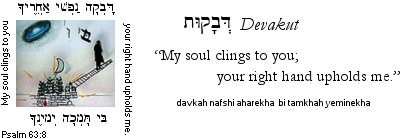
06.06.14 (Sivan 8, 5774) "I am the true vine, and my Father is the vinedresser. Every branch in me that does not bear fruit he takes away, and every branch that does bear fruit He purges (καθαίρει), that it may bear more fruit" (John 15:1-2). If you bear fruit you will experience the "purging process," and that means suffering affliction... This might seem to you backward: Why does the fruitful branch need to be cut back? Indeed, the promise of suffering is not meant for an evil person, but for the righteous soul who trusts in God. Purging is painful but it is also purifying, yielding new growth within our hearts. Yeshua taught, "Blessed are the pure in heart, for they shall see God" (Matt. 5:8). The Greek word translated "pure" is katharos (καθαρός), sometimes used describe the cleansing of a wound (catharsis), or to describe the unalloyed quality of a substance revealed through refining fire. We "rejoice" in testing because that is the way of real growth, sustained hope, and the revelation of God's deep love (Rom. 5:3-4). In our afflictions we are given heavenly consolation that helps us to persevere (2 Cor. 1:3-5). We are being weaned from this present age to be made ready for heavenly glory, for things unimaginably wonderful, soon to be revealed to you. Chazak – stay strong in the Lord, friends.
טוֹב־לִי כִי־עֻנֵּיתִי לְמַעַן אֶלְמַד חֻקֶּיך
tov li khi-u·nei·ti, le·ma·an el·mad chu·ke·kha

"It is good for me that I was afflicted,
that I might learn your decrees." (Psalm 119:71)

Torah to the Bones...

[ I wrote this last year, but I am reposting it for the holiday of Shavuot this year... ]
06.06.14 (Sivan 8, 5774) The message of the cross scandalizes human pride because it unconditionally declares there is nothing we can do to justify ourselves before God apart from the work of the Messiah rendered on our behalf. Human pride naturally wants to add something to the mix - by esteeming our will or our obedience to be determinative, but the Scriptures attest that we are declared righteous by trusting in the sacrifice of God for our souls, and not because of any merit of our own (Gal. 3:11). In other words, salvation is "of the LORD," and we are entirely hopeless apart the direct intervention of God for healing.... The Lord saves us, not because of works of righteousness (מַעֲשֵׂי הַצְּדָקָה) we might do, but solely on account of His mercy offered to us in Messiah our Savior (Titus 3:5).
In general, human pride has no quarrel with the theology of a transcendent, all-powerful, and holy God to whom we all owe obedience, and therefore religious systems based on "karma" are invariably amenable to human pride... A "First Cause" or a Source of Moral Law may present a religious demand upon the soul, but it presents no scandal to human reason. After all, the law of religion is simply "do what is good and you will be rewarded; do what is evil and you will be punished," and karma-based religions aim to effect a favorable "disposition" in the eyes of heaven. What is scandalous, however, and what is therefore entirely paradoxical to human reason, is that the Infinite One Himself became Finite and embodied as a human being, and that the infinitely transcendent One is also the entirely immanent One, pervading every possible world and every realm of creation -- including the "fallen" realm of humanity -- to become manifest in visage of Yeshua of Nazareth....
Again, it is relatively easy for human reason to concede awareness of a transcendental power that created the universe and who is the Source of Moral reality, but it cannot fathom how such Supreme Power could be made manifest in a state of weakness, identifying with what is most broken, most perverse, and most sick in the human soul and condition. The cross of Messiah is a scandal because human pride wants to deny the reality that humanity is incurably wounded, sick and without hope apart from divine intervention. Religious pride imagines that mankind is able to ascend the heights of heaven in its own strength, but the message of the cross is that God's love is so great that He is willing to descend - to willingly empty Himself to undergo shame, disgrace, condemnation - and indeed the horror of execution by crucifixion - all for the sake of our everlasting healing and salvation.
Do you want Torah that cuts to the bone? Do you want the raw, unvarnished truth? Then look to the cross of Messiah, the hallowed place (הַמָּקוֹם) where the transcendent, the all-powerful, and the holy are surrendered to become an object of horror, grief, and despair; where God's own glorious holiness and righteousness are exchanged for our sin... We must turn away from the urge to deny reality, by pretending that the salvation could be gained by some sort of self-improvement project, or by assuming that there exists some form of repentance that can take the place of the awful divine remedy given in our place. Turn to the cross and receive the death benefits of Messiah! "For I decided to know nothing among you except Yeshua the Messiah and him crucified" (1 Cor. 2:2).
Some people are reluctant to accept the truth of God's unconditional love because they fearfully imagine that doing so will lead to "lawlessness," or to a lax attitude that tolerates or even justifies sin. "Why not do evil that good may come?" they reason (Rom. 3:8). Such thinking grievously misunderstands the purpose of Torah, however, and fails to see that the "deeper Torah" allows us to walk in the light of God's truth. The goal (or "end") of the Torah is love - the divine love revealed in Messiah - and if we really love God, we will not seek an excuse to gratify our lower nature at the expense of our relationship with Him.
The scandal of the cross goes both ways, however... If human pride is offended at the truth about its hopeless condition, then God is offended when people deny or minimize the need for the cross of the Savior. When Peter sought to find an alternative cure for the fatal disease we all share, Yeshua said to him: "Out of my sight, Satan! You are a stumbling block (i.e., scandal: σκάνδαλόν) to me; for you do not have in mind the things of God, but the things of men" (Matt. 16:21-24). Do you want to know what outrages the Spirit of God? The denial of the cross and its eternal significance; the delusion that we can effect our own righteousness apart from God's grace. The "scandal of the cross" ultimately is a problem for human pride, and certainly not to the LORD God our Savior, who uses the cross to demonstrate the wisdom and power of God (1 Cor. 1:18). Those who deny the need for the cross, however, are left without remedy for their eternal condition (Heb. 10:26-31).
A scandal is a disgrace, a shame, an offence, even an outrage. The cross is scandalous because it represents the "death of God," that is, the sacrifice of God's transcendence, power, and holiness to become entirely identified with the fallenness of mankind. This is the shock the disciples had to face when they witnessed Yeshua die... The cross reveals that we are powerless to heal ourselves, and that the remedy is only found in the life given in our exchange. The exchange works both ways: We must deny ourselves - our pretenses, our supposed dignity, our inflated sense of self-importance - to receive what Yeshua has done by becoming our substitute. We must impute our sin to Him as our Sin-Bearer and impute His love to us as our Healer. We are crucified with Him, we are made part of that great exchange, by trusting in His work of salvation performed for us. We must be careful not to mock God. We don't give lip-service to what Yeshua has done and then revert to a pretense of righteousness based on self-determination or so-called "Torah observance."
We give up our efforts to earn God's favor by surrendering to His love and care for our lives. We trust in God for the gift of righteousness, not in our own attempts to please him through religious rituals. Neither do we seek to defend or justify ourselves by appealing to our "good deeds," personal virtues, our Torah study, and so on... No, salvation is "of the LORD" (לַיהוָה הַיְשׁוּעָה). Again, we are not saved "by works of righteousness (מַעֲשֵׂי הַצְּדָקָה) that we have done, but solely on account of God's mercy given to us in Messiah our Savior (Titus 3:5). Grace excludes all boasting (Eph. 2:9). We believe that God justifies the ungodly by trusting in his heart of compassion (Rom. 4:1-8). God loves us with "an everlasting love" (i.e., ahavat olam: אַהֲבַת עוֹלָם) and draws us in chesed (חֶסֶד, i.e., His faithful love and kindness). As it is written: אַהֲבַת עוֹלָם אֲהַבְתִּיךְ עַל־כֵּן מְשַׁכְתִּיךְ חָסֶד / "I love you with an everlasting love; therefore in chesed I draw you to me" (Jer. 31:3). Note that the word translated "I draw you" comes from the Hebrew word mashakh (מָשַׁךְ), meaning to "seize" or "drag away" (the ancient Greek translation used the verb helko (ἕλκω) to express the same idea). As Yeshua said, "No one is able to come to me unless he is "dragged away" (ἑλκύσῃ) by the Father (John 6:44). God's chesed seizes us, scandalizes us, takes us captive, and leads us to the Savior... Spiritual rebirth is a divine act, "not of blood nor of the will of the flesh nor of the will of man, but of God" (John 1:13). In everything - including human reason itself - the LORD God Almighty is preeminent.
Revelation of the Torah...

[ The following is related to the holiday of Shavuot, which began earlier this week... ]
06.06.14 (Sivan 8, 5774) During the holiday of Shavuot ("Weeks") we remember how the LORD graciously condescended to meet with the Jewish people at Sinai, and how all the people heard the Voice of God (קוֹל אֱלהִים) speaking from the midst of the fire (Deut. 4:33). This awesome event foreshadowed the great advent of the King and Lawgiver Himself, when the Eternal Word (דְבַר־יְהוָה) became flesh to dwell with us (Phil. 2:6-7; John 1:1,14), and it further foreshadowed the advent of the Spirit of Truth given to the disciples of Messiah (Acts 2:1-4). Any theology that regards God as entirely transcendent will have a problem with divine immanence, since the highness, holiness, and perfection of God will make him seem distant, outside of us, far away, and even unknown... Incarnational theology, on the other hand, manifests the nearness of God to disclose the divine empathy. Indeed, the LORD became Immanuel (עִמָּנוּ אֵל), "one with us," to share our mortal condition, to know our pain, and to experience what it means to be wounded by sin, to be abandoned, alienated, forsaken. The "Eternal made flesh" bridges the gap between the realm of Ein Sof (אין סוף), the Infinitely transcendent One, and the finite world of people lost within their sinful frailty. Of course we believe Adonai Echad (יְהוָה אֶחָד) - that the "LORD is One" - both in the sense of being exalted over all things but also in the sense of being compassionately involved in all things (Rom. 11:36). During Shavuot we celebrate the giving of the Torah both at Sinai, at Bethlehem (בֵּית לֶחֶם), and within our hearts. We celebrate that God is indeed the King and Ruler over all, but we further affirm that God's authority and rule extends to all possible worlds - including the realm of finitude and even death itself.
A verse for Shavuot comes from the prophet Isaiah. Note the allusion to hashilush HaKodesh (הַשִּׁלּוּשׁ הַקָּדוֹשׁ), the three references of the Name of the LORD (יהוה):
כִּי יְהוָה שׁפְטֵנוּ יְהוָה מְחקְקֵנוּ
יְהוָה מַלְכֵּנוּ הוּא יוֹשִׁיעֵנוּ
ki · Adonai · sho·fe·tei·nu · Adonai · me·cho·ke·kei·nu
Adonai · mal·kei·nu · hu · yo·shi·ei·nu

"For the LORD is our judge; the LORD is our lawgiver;
the LORD is our king; He will save us."
(Isa. 33:22)

Hebrew Study Card
As I've mentioned before, the climax of the Torah given at Sinai was the revelation of the "three-in-one" Sanctuary (i.e., the Mishkan or "Tabernacle"), where the daily sacrifice of a defect-free lamb (i.e., korban tamid: קָרְבַּן תָּמִיד) was offered upon the altar with matzah and wine (Num. 28:1-8), clearly foretelling the great "Passover Lamb of God" who was to come... The two tablets of the law, summarizing the Ten Commandments, were stored inside the Ark of the Covenant (אֲרוֹן בְּרִית־יְהוָה), a sacred "three-in-one" box set within the innermost chamber called the Holy of Holies (קדֶשׁ הַקֳּדָשִׁים). As such, the Ark served as a symbol of kisei ha-kavod (כִּסֵּא הַכָּבוֹד), or the Throne of Glory. Upon the cover of the Ark (i.e., the kapporet) were fashioned two cherubim (i.e., angel-like figures) that faced one another (Exod. 25:17-18). According to the Talmud (Succah 5b), each cherub had the face of a child - one boy and one girl - and their wings spread heavenward as their eyes gazed upon the cover of the Ark (Exod. 25:20). God's voice would be heard only in the presence of innocence, humility, purity, and hope... Each year during the sacred Yom Kippur service, sacrificial blood was sprinkled seven times over the cover of the Ark to symbolize the covering of the law's demand and the atonement of sin that would be secured through the Messiah. After the Yom Kippur service, the High Priest would pronounce the "three-in-one" blessing over the people (i.e., birkat ha'kohanim). The revelation of the Altar - the end or goal of the law - then, reveals that sacrificial blood placed over the tablets of the law would provide atonement for our sins, and that, of course, is the message of the cross (Col. 2:4).
Whisper of the Spirit...
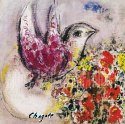
06.06.14 (Sivan 8, 5774) The Spirit speaks with a "still and gentle whisper" which will be nearly inaudible unless we make room within ourselves to listen... If we entertain negative thoughts or messages, however, our spiritual receptivity will be impaired or damaged. For example, if we listen to the news of this world and believe its messages of fear or anger, we will squelch the whispering of the Holy Spirit. The Name YHVH (יהוה) means "God is Present" and near, as close as your heart. The LORD is near, even when you might feel lost and far away... We attune ourselves to hear kol demamah dakkah (קוֹל דְּמָמָה דַקָּה), God's "still, small voice," when we are quieted, not when we are listening to the fear-mongering and propaganda of this world. When the world offers you its visions to make you afraid, remind yourself once again of what is real, true, and abiding... There is peace for you: "In returning and rest you shall be saved; in quietness and in trust shall be your strength" (Isa. 30:15).
An End to Our Darkness...

06.05.14 (Sivan 7, 5774) In our struggle against the darkness, there is an end coming, so don't let your heart grow numb. Never give up hope. The Spirit says: "Be silent before the LORD and wait patiently for him; do not burn with anger over the one who prospers in his way, over the man who carries out evil schemes. Abandon your anger and forsake your rage. Do not burn with anger: it tends only to distress. For the evildoers shall be cut off, but those who keep hope in the LORD shall inherit the land. In just a little while, the wicked will be no more; though you look carefully at his place, he will not be there" (Psalm 37:7-10).
וְעוֹד מְעַט וְאֵין רָשָׁע
וְהִתְבּוֹנַנְתָּ עַל־מְקוֹמוֹ וְאֵינֶנּוּ
ve·od · me·at · ve·ein · ra·sha
ve·hit·bo·nan·ta · al · me·ko·mo · ve·ei·ne·nu

"In just a little while, the wicked will be no more;
though you look carefully at his place, he will not be there."
(Psalm 37:10)

Just a little longer (od me'at) and there will be no wicked one (ve'ein rasha). Soon God will utterly vanquish wickedness, though in the present hour such hope might seem distant and far away. Stay strong in your desire for God's Name to be vindicated, for righteousness and love to shine as the noonday. Take hold of this vision through tevunah (understanding), and contemplate that there will be "no place" for the wicked one: wickedness itself will be driven away like dissipating smoke. Moreover, it is not only the wicked of this world, but our own inner wickedness that will find no place, for in the world to come we will be free from not only sin's influence but also sin's presence within our own hearts... Maranatha!
The Fruit of the Spirit...

06.05.14 (Sivan 7, 5774) Regarding the "new heart" that informs the follower of Yeshua, the Apostle Paul wrote, "the fruit of the Spirit (פְּרִי הָרוּחַ) is love, joy, peace; long-suffering, generosity, acts of kindness; faithfulness, humility, and modesty - against such there is no law" (Gal. 5:22-23). Notice that while there is "one fruit" of the Spirit (i.e., "fruit" [καρπὸς] is singular), God produces a manifold yield, just as the one Tree of Life (עֵץ הַחַיִּים) produces twelve different kinds of fruit, one for each month of the Jewish year (see Rev. 22:1-2). We are told, however, that spiritual fruit does not immediately crop up but requires time and its own "season" (Psalm 1:3). Moreover the process of spiritual growth is mysterious and divine: "The Kingdom of God is like someone who spreads seed on the ground. He goes to sleep and gets up, night and day, and the seed sprouts and grows, though he does not know how. By itself (αὐτομάτη, "automatically") the soil produces a crop, first the stalk, then the head, then the full grain in the head. And when the grain is ripe, he comes in with his sickle because the harvest has come" (Mark 4:26-29).
Note: In the list of the fruit of the Spirit, it is important to see what is not listed.... What is not listed are "signs," "wonders," or the trappings of worldly success or power. Though spiritual impostors may simulate the exercise of spiritual gifts, they can never "fake" the real fruit of the Holy Spirit.... Yeshua did not say that you shall know them by their flash, but "you shall know them by their fruits" (Matt. 7:16-20). It is the fruit of the Spirit of God - not the fruit of your best efforts, your devotion, your desire. For more see "The Fruit of the Spirit."
The Chesed of Ruth...

[ The following is related to the Book of Ruth, which is traditionally read during the holiday of Shavuot ("Pentecost"). Happy holidays, chaverim! ]
06.05.14 (Sivan 7, 5774) The Book of Ruth (מְגִלַּת רוּת) tells a marvelous story of redemptive love and devotion (i.e., chesed: חֶסֶד) dating back to the dark period of Jewish history known as the "time of the Judges" (c. 12th century BC). The story is traditionally read during Shavuot, both because the events recounted took place during the time of the spring harvest (linking it to the agricultural aspect of holiday), and Ruth herself is a picture of willing acceptance of a Jewish lifestyle (linking it to the religious aspect of the holiday). Just as Israel willingly accepted the Torah at Sinai without knowing its content (kol asher diber Adonai na'aseh v'nishmah), so Ruth gave up everything she knew to accept the Torah. Like the people of Israel, Ruth believed in order to understand, not the other way around...
Ultimately the story of Ruth illustrates that the law by itself is unable to redeem us (as illustrated by the unnamed 'redeemer' who did not wish to "mar" his inheritance), and therefore something more is needed. A true go'el (גאֵל), or "kinsman redeemer," is marked by love and compassion, just as the law of the Spirit of life (תּוֹרַת רוּחַ הַחַיִּים) is what sets us free from the law of sin and death (תּוֹרַת הַחֵטְא וְהַמָּוֶת). Ruth overcame the "letter of the law" by faith in God's redemptive love, just as Yeshua overcame the judgment of the law by means of God's greater love... Therefore like Ruth, we have to "go to the threshing floor" as a forbidden outsider to lay claim to the redeeming love of God; we have to say to the LORD, "Spread your wings over your servant, for you are my Redeemer" (Ruth 3:9). Indeed, by faith we have to push past the enmity required by the Torah with its commandments and ordinances to receive our healing - and to find our place within the family of God...
כִּי אֶל־אֲשֶׁר תֵּלְכִי אֵלֵךְ
וּבַאֲשֶׁר תָּלִינִי אָלִין
עַמֵּךְ עַמִּי וֵאלהַיִךְ אֱלהָי
ki · el · a·sher · tel·khi · e·lekh
u·va·a·sher · ta·li·ni · a·lin
a·mekh · am·mi · ve·lo·ha·yikh · E·lo·hai

"For where you go I will go
and where you lodge, I will lodge
your people shall be my people, and your God my God."
(Ruth 1:16)
In this connection it is interesting to see that King David's genealogy not only included the noble line of Abraham/Sarah, Isaac/Rebakah and Jacob/Leah, but it also included Judah/Tamar, Boaz/Ruth, and Salmon/Rahab. Moreover, in the genealogy of Yeshua the Messiah given in Matthew (1:1-16), only four women (besides Mary) are explicitly named: Tamar (who seduced her father-in-law), Rahab (a prostitute), Ruth (a Moabitess), and "the wife of Uriah" (i.e., Bathsheba, an adulteress). Each of these women of faith illustrate that God's love and grace overcomes His judgment. Here is a (very simplified) diagram I made to indicate some of the relationships:
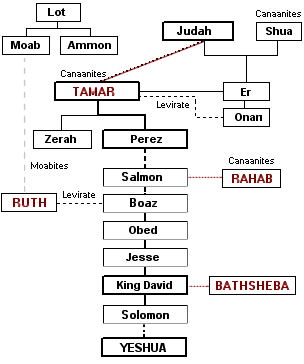 |
Ultimately, Ruth's teshuvah was accepted, even though she was an outcast - a Moabite of whom the Torah stated: "none of them may enter the assembly of the LORD forever" (Deut. 23:3). Ruth's great faith was not unlike that of the Canaanite woman who was accepted by Yeshua (Matt. 15:22-28). Both women overcome even the law of the Torah by faith in God's chesed and grace... In the case of Ruth, her faith enabled the House of David to come - and from this, the line of Yeshua our Messiah and Savior...
Note: For more on this subject, see "The Chesed of Ruth."
Menorah and Olive Trees..

[ The following is related to this week's Torah reading, parashat Beha'alotekha... ]
06.05.14 (Sivan 7, 5774) In the prophet Zechariah's great vision of the menorah (Zech. 4:1-10), seven "pipes" (מוּצָקוֹת) led to each of the seven lamps - 49 pipes in all - indicating the perfection of the Spirit of God and recalling the Jubilee of Shavuot (Zech. 4:2). Two olive trees stand next to the menorah, one on the right, and one on the left (Zech. 4:2-3). The two olive trees may picture the the kingship and the priesthood united in Yeshua our Messiah, or they may refer to Israel and the ekklesia, respectively. Zechariah then exclaims, "This is the word of God to Zerubavel: 'not by might or power, but by my Spirit, says the LORD of Hosts'" (Zech. 4:6). Note that the passage ends with the statement, "he shall bring forth the top stone (הָאֶבֶן הָראשָׁה) with shoutings of 'Grace, grace, unto it' (Zech. 4:7), a clear picture of the crowning glory of our Messiah and great High Priest, Yeshua...
For more on this subject, see "The Menorah and Tree of Life."
The Eyes of the Heart...

06.05.14 (Sivan 7, 5774) The Hebrew word for "seeing" (ra'ah) is related to the word for "fear" (yirah), suggesting that when we really see life as it is, we will be filled with wonder and awe over the glory of it all. Every bush will be aflame with the Presence of God and the ground we walk upon shall suddenly be perceived as holy (Exod. 3:2-5). Nothing will seem small, trivial, or insignificant. It is in this sense that we are to serve the LORD with "fear and trembling" (φόβοv καὶ τρόμοv), that is, with an awareness of the sanctity and sacredness of life itself (Phil. 2:12-13). Da lifnei mi atah omed: "Know before Whom you stand." Sin puts us to sleep, numbs our minds and hearts, and blinds us to the radiance of revelation. When we see life as it is, with the "eyes of the heart" (Eph. 1:18), we will be filled with wonder and awe over the glory of it all. "Fearing" (יִרְאָה) and "seeing" (רָאָה) will be linked and unified. O Lord, heal my heart to fear Your Name (Psalm 86:12).
גַּל־עֵינַי וְאַבִּיטָה
נִפְלָאוֹת מִתּוֹרָתֶךָ
gal · ei·nai · ve·a·bi·tah
nif·la·ot · mi·to·ra·te·kha

"Open my eyes and I will behold
wondrous things out of your Torah."
(Psalm 119:18)

Torah of Trust...

[ Chag Shavuot Same'ach, chaverim - Happy festival of Shavuot, friends... ]
06.04.14 (Sivan 6, 5774) "Blessed is the man who trusts in the LORD, whose trust is the LORD. He is like a tree planted by water, that sends out its roots by the stream, and does not fear when heat comes, for its leaves remain green, and is not anxious in the year of drought, for it does not cease to bear fruit" (Jer. 17:7-8). This passage recalls King David's words in the first Psalm: "Blessed is the man who walks not in the counsel of the wicked, nor stands in the way of sinners, nor sits in the seat of scoffers; but his delight is in the Torah of the LORD (בְּתוֹרַת יְהוָה חֶפְצוֹ), and in his Torah he meditates day and night. He is like a tree planted by streams of water that yields its fruit in its season, and its leaf does not wither. In all that he does, he prospers" (Psalm 1:1-3). Barukh atta Adonai, ha'notein ha'torah ha'chayim b'Yeshua (בָּרוּךְ אַתָּה יְהוָה הַנּוֹתֵן הַתּוֹרָה חַיִּים בְּיֵשׁוּעַ): "Blessed are you, LORD our God, king of the universe, Giver of the Torah of life in Yeshua."
בָּרוּךְ הַגֶּבֶר אֲשֶׁר יִבְטַח בַּיהוָה
וְהָיָה יְהוָה מִבְטַחוֹ
ba·rukh · ha·ge·ver · a·sher · yiv·tach · badonai
ve·ha·yah · Adonai · miv·ta·cho

"Blessed is the man who trusts in the LORD,
whose trust is the LORD."
(Jer. 17:7)

The Lawful Use of the Law...

06.04.14 (Sivan 6, 5774) When God proclaimed the Ten Commandments he said in effect, "I know who you really are, I see you..." This is why the people drew back in fear, since God saw their inner condition, exposed it, and shined the light of His truth upon it. We all have the impulse to be faithless, to worship the moment, to cheat, to lie, to lust, to kill, and so on. If you think you can keep the law by means of your religion, then it's unlikely you've honestly examined your own inner impulses. There is a "lawful use of the law" (1 Tim. 1:8-11), where truth is employed to reveal our problem with sin: "You have heard that it was said, 'You shall not commit adultery.' But I say to you that everyone who looks at a woman with lustful intent has already committed adultery with her in his heart" (Matt. 5:27-28). Surely the Lord knows what is hidden within us; he realizes the true nature of our sinful condition and our need for deliverance: "For out of the heart come evil thoughts, murder, adultery, sexual immorality, theft, false witness, slander..." (Matt. 15:19).
The law testifies both to the holy character of God as well as our inner condition of heart, and its imperatives speak to the need for deliverance. This is the entry point, if you will, because the assumption that the "flesh" can justify itself through its own inner determination must be shattered and broken as were the first tables of stone... It is only after confession and the acceptance of our great need for divine deliverance are we given new hearts to serve God -- no longer as fearful slaves, but as His redeemed children.
"Torah" means something far more than merely the mishpatim, chukkot, and shoftim (laws, decrees, and judgments) revealed in the lawcode given to Moses. There is Torat Yeshua, the "yoke" of His teaching that brings you before the Throne of Grace, before the heavenly kapporet, and that empowers you to walk in divine love by the power of the Holy Spirit. The New Covenant provides both the Source for keeping the inner meaning of the Torah - as well as its true End - in Yeshua, the First and the Last, who is forever the Living Torah...
The law was given as a guardian (παιδαγωγὸς) intended to restrain the evil impulses of the heart until transformation by Messiah would be given to those who believe (Gal. 3:24-25). The problem is not with the law, of course, but with the underlying condition of the heart... What we need is not mere outward conformity but a genuine change of heart - and that is precisely what the New Covenant is all about: spiritual rebirth, a new "heart of flesh," and God-given power to walk in love that transcends the law and its requirements. The law, in other words, was never meant to be an end in itself but only a means to a greater end, namely, the life of love, joy, peace, freedom, and the fruit of the Holy Spirit - "against such things there is no law" (Gal. 5:22-23). The genuinely regenerated soul is a "new creation" that inhabits a new realm or "order" of reality (2 Cor. 5:16-17; Gal. 6:15).
Note: "Tzedek, tzedek tirdorf" - we must pursue righteousness in righteous ways (Deut. 16:20), just as we must judge others "with tzedakah (charity) in our hearts" (John 7:24). There is the "lawful use of the law" and there is the "unlawful use of the law." The "unlawful use of the law" makes truth into a weapon to condemn others or to keep them away from God's love; the "lawful use of the law" teaches us our ongoing need for God's compassion as given to us in Yeshua. For more on this important subject, see "Why then the Law?"
Happy Shavuot, Friends!

06.04.14 (Sivan 6, 5774) During Passover we were rescued from slavery by trusting in God's promised salvation and applying the blood of the lamb to the doorposts of our homes. God "passed over" our homes as the final plague of death ravaged Egypt in judgment. The following day we began our journey to the promised land as a redeemed people! A few days later, however, Pharaoh decided to pursue us, and his army caught up with us as we camped beside the Sea of Reeds. We cried out for help and the LORD split the sea so we could cross over to safety, while our enemies died trying to pursue us. Praise the LORD! Our former life was now forever behind us!
 |
As we trekked in the desert, God fed us bread from heaven (manna) and water from rock. We arrived at Sinai - the place where Moses was commissioned at the Burning Bush - on the first day of third month (i.e., Sivan 1). Moses then ascended the mountain and returned to give us instructions about how to prepare to meet God a few days later. Exactly seven weeks after the Passover/Exodus, we awoke to thunder and lightning and a thick cloud on the mountain and a very loud shofar blast, and Moses brought us to the foot of the mountain where we heard God speaking the Ten Commandments. Because we trembled in great fear over the awesome spectacle, we urged Moses to go up the mountain to receive details of the law, where he stayed 40 days and nights to receive the vision of the Tabernacle and the Altar. (Our tradition recalls this time as "Shavuot," when we celebrate the giving of the law at Sinai seven weeks after the Exodus). However, after 40 days passed, on the 17th of Tammuz, we thought Moses was dead; we lapsed in faith and made an idol to worship. Moses then descended the mountain and smashed the tablets to the ground. After passionately interceding on behalf of Israel for 40 days, God invited Moses up the mountain yet again (for another 40 days and nights, beginning on Elul 1), where God revealed the inner meaning of the Name YHVH (יהוה) to him (Exod. 34:6-7). The LORD then restored the broken tablets and Moses descended to the people on Tishri 10, that is, on Yom Kippur, which is the day we celebrate God's great mercy and forgiveness.
 |
In traditional Judaism, the festival of Shavuot ("Weeks") marks the culmination of the experience of redemption, sometimes called Atzaret Pesach, the Conclusion of Passover. Since the Exodus from Egypt was intended to lead to the revelation of Sinai, the goal of Passover is the giving of the Torah to the Jewish people. God took the Jews out of Egypt so that they would be His own treasured people, holy and separated from the pagan cultures around them. Indeed, all of the mo'edim (holidays) are connected with this event, including the fall festivals of Rosh Hashanah, Yom Kippur, and Sukkot.
And of course all of the biblical holidays find their fulfillment in Yeshua, the great Lamb of God and High Priest after the order of Malki-Tzedek... Yeshua is the Voice of the LORD that speaks from the heart of the fire revealed at Sinai - and also at Zion. Bless His Name forever!
Ten Commandments - in Duplicate?

06.03.14 (Sivan 5, 5774) The Ten Commandments are ten "words" or "utterances" (aseret ha-dibrot) that were later inscribed on two tablets of stone (luchot) by the finger of God (Exod. 31:18; 32:15). In the Mekhilta (an early midrashic collection on Exodus, pseudonymously ascribed to Rabbi Ishmael, 90-135 AD), Rabbi Gamaliel is quoted as saying: "How were the Ten Commandments given? Five on one tablet and five on the other. 'I am the Lord' was written across from 'You shall not murder,' but the (earliest) Sages say ten [were written] on one tablet and ten [were written] on the other."
Contrary to the way the commandments are represented by most Christian and Jewish artists, the opinion of the earlier sages (i.e., pre-Mishnah interpreters) was that all ten of the commandments written on both of the tablets, a practice similar (but not identical) to other ancient Near Eastern covenants made between kings and their vassals. In other words, the Ten Commandments were given in duplicate form, and both tablets (i.e., copies of the contract) were deposited in the Holy Ark (and later at the Temple) to represent the terms of the agreement for both parties. This is similar to other ancient Near East treaties where one copy was given to the king and the other copy was given to the vassal.
The Inner Torah...

06.03.14 (Sivan 5, 5774) Strictly speaking the content of the Ten Commandments, from a moral perspective, presented no new revelation, since sacred reality is intuitively understood within every created soul (Gen. 1:27; John 1:9; Acts 17:24-28). As it is written, "The wrath of God is revealed from heaven against all ungodliness and unrighteousness of men, who suppress (i.e., hold down: κατέχω) the truth by their unrighteousness, because that which can be known about God is evident within them, for God has revealed it to them" (Rom. 1:18-19). Where Paul says, "against all ungodliness" he refers to our universal duty before the Living God (בֵּין אָדָם לָמָקוֹם); and likewise "all unrighteousness," refers to our universal duty toward other people (בֵּין אָדָם לְחֲבֵרוֹ). The "invisible things of God are seen" so vividly that people are "without excuse" (ἀναπολόγητος) for their evasion and rejection of the Divine Presence, which constitutes a disposition of rebellion, treason, and desecration (Rom. 1:20). The deeper revelation given at Sinai, however, was not an elaborate lawcode but something else, namely, the solution for the problem of sin as prefigured in the Altar of the Tabernacle and the daily sacrifice of the lamb (i.e., korban tamid: קָרְבַּן תָּמִיד; Num. 28:1-8). "The people stood far off, while Moses drew near to the thick darkness where God was" (Exod. 20:21). The onlookers saw the outer, the imposing, the threatening, and this made them distant, but Moses entered the inner region and was given the vision of the altar (Exod. 25:9; John 5:46-47; Heb. 8:6). Likewise Yeshua did not come to be a moral teacher of the law but to bear the penalty of our lawlessness (2 Cor. 5:21; Gal. 3:13). Our Savior died upon the cross shrouded in complete darkness, yet entering the inner region reveals God's passion offered up for you (Luke 23:44-45).
The Will to Believe...

06.03.14 (Sivan 5, 5774) The children of Israel accepted the covenant with these words: na'aseh ve'nishmah (נַעֲשֶׂה וְנִשְׁמָע), "We will do and we will hear" (Exod. 24:7), putting "do" before "hear." The sages ask how you can do something before you hear what you are asked to do, and answer that this is possible only in the case of the will, that is, by the decision to do whatever may be asked of you, and this willingness is born of trust. Therefore the first commandment is always this: "I am the LORD your God," which is to say God offers himself to you, and the heart of faith responds in trust...
Delighting in Torah...

[ The giving of the Torah at Sinai is part of our masorah (legacy) as followers of Yeshua... ]
06.03.14 (Sivan 5, 5774) The Scriptures declare: "Blessed is the man who ... delights in the Torah of the LORD (בְּתוֹרַת יְהוָה); all that he does shall prosper" (Psalm 1:1-3). And while it is true that we are no longer 'under' the constraints of the former covenant given at Sinai (Rom. 3:20-28), we are repeatedly instructed to delight in the Torah and to meditate on its precepts day and night (Josh 1:8, Psalm 1:2; 19:8; 119:15, 47, 97; Neh. 8:12, etc.). As it is written in Proverbs: "If you seek it [i.e., the wisdom revealed in the Torah] like silver and search for it as for hidden treasures, then you will understand the fear of the LORD and find the knowledge of God" (Prov. 2:4-5). Indeed, the New Testament says that the "the Torah is holy, and the commandment is holy and righteous and good" (Rom. 7:2), and where it is written, "all Scripture is breathed out by God and is profitable for teaching, for reproof, for correction, and for training in righteousness" (2 Tim 3:16-17), it is evident that the Jewish Scriptures (i.e., the Torah, the Prophets, and the Writings) are meant, since they provide the foundation, context, and the overarching matrix for the later New Covenant revelation... And of course these were the Scriptures Yeshua used to explain his ministry to his followers: "And beginning with Moses and all the Prophets, he interpreted to them in all the Scriptures the things concerning himself" (Luke 24:27; John 1:45). In other words, the Torah has both a logical, a linguistic, and a theological priority for understanding the New Testament Scriptures, and the failure to read in context invariably leads to faulty interpretations and doctrinal errors of various kinds. God "breathed out" (θεόπνευστος) his revelation in order, and the message itself must be understood in light of that order (Gal. 4:4-5).
The Holy Spirit still speaks to the heart of those who love Yeshua, the everlasting King of the Jews: "Oh how I love your Torah (תּוֹרָה); it is my meditation all the day."
מָה־אָהַבְתִּי תוֹרָתֶךָ
כָּל־הַיּוֹם הִיא שִׂיחָתִי
mah · a·hav·ti · to·ra·te·kha
kol · ha·yom · hi · si·cha·ti

"Oh how I love your Torah;
It is my meditation all the day."
(Psalm 119:97)

Hebrew Study Card
This verse begins the "Mem section" of the Psalm 119 acrostic. Mem is the letter of "water" (mayim), symbolizing the "spring" of the Torah. In traditional soferut (scribal arts), the letter Mem (מ) is formed from two parts: a Vav (ו) and a Kaf (כ), the gematria of which equals 26, the same value for the sacred Name YHVH (יהוה). The Torah (תּוֹרָה) is central to the revelation of the LORD, just as Yeshua is forever "the Voice of the Living God speaking from the midst of the fire" (Deut. 5:26, Matt. 17:1-3).
Holy Hush of Revelation...

[ The holiday of Shavuot begins tonight... Chag Shavuot Same'ach (חג השבועות שמח). ]
06.03.14 (Sivan 5, 5774) The midrash (Shemot Rabbah) says that when God gave the Torah at Mount Sinai, "not a bird chirped, no fowl flew, no ox lowed, angels did not fly, seraphim did not sing "holy, holy, holy," the sea did not stir, and no creature spoke. The world was utterly silent when a Voice was heard saying, "I AM the LORD your God..." Likewise, if we find a place for revelation – if we quiet our hearts in reverence and silence – we will hear "the Voice speaking out of the midst of the fire" from Mount Zion, saying, "Do not fear; only believe..."
Unity of the Commandments...
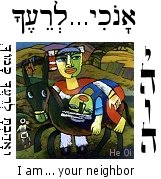
[ The following is related to the holiday of Shavuot, which begins June 3rd at sundown... ]
06.02.14 (Sivan 4, 5774) Some of the sages divide the Ten Commandments into two groups of five commandments each. The first group (of five) begins with "I AM the LORD your God," and ends with "honor your father and mother," and these concern man's responsibility toward God (מִצְווֹת בֵּין אָדָם לָמָקוֹם). The second group of five begins with "do not murder" and ends with "do not covet," and these concern man's responsibility toward his fellow man (מִצְווֹת בֵּין אָדָם לְחֲבֵרוֹ). The sages note, however, that all the commandments flow from one another. For instance, if you accept the LORD as your God, this will be expressed by controlling your words (not taking the Name in vain), and your deeds (keeping the Sabbath sacred), and by esteeming your parents. The ability to show respect to others, however, is based on self-respect, and how you regard yourself will determine the way you regard others. If you value your life and your relationship with God, you will not murder, steal, deceive, or otherwise harm people made in God's image. The unity of the commandments shows that worship of God (i.e., "religion") is worthless if we neglect our duty to our neighbor and to ourselves. Indeed, the first word of the Ten Commandments, anokhi (אָנכִי), when combined with the last word, l're'akha (לְרֵעֶךָ), says "I AM your neighbor," and therefore how we treat others (including our self) is how we treat God...
 |
The midrash adds that God put "you shall not covet" at the end because if you haven't observed this commandment, you have missed the point of all the others, and you must therefore begin again with the reality and Presence of "I AM the LORD your God." If you sincerely receive the LORD as your God, you would not envy what God, the Ruler of the world, has apportioned to others...
Everyday Revelation...
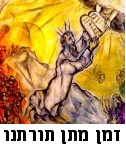
[ The following is related to the holiday of Shavuot, which begins June 3rd at sundown... ]
06.02.14 (Sivan 4, 5774) The Kotzker rebbe asked, "Why is Shavuot (i.e., Pentecost) called 'zman mattan torateinu,' the time of the giving of our Torah, rather than 'zman kabbalat torateinu,' the time of the receiving of our Torah? The reason is that on that momentous day at Sinai, only the giving of the Torah occurred, whereas the receiving of the Torah must take place each and every day, as it says, "Trust in the LORD 'bekhol libbekha' (בְּכָל־לִבֶּךָ) - with all your heart; and know Him 'bekol derakhekha' (בְּכָל־דְּרָכֶיךָ), in all your ways" (Prov. 3:5-6). The giving of the Torah is described as a "loud and never-ending voice" (Deut. 5:19), though it is our constant responsibility to shema – to receive the invitation of God's heart.
The haggadah states, "Each person in every generation must regard himself or herself as having been personally set free from Egypt," and that liberation includes being present at the revelation of Torah at Sinai....
Right and Left Tablets...

[ The following is related to the holiday of Shavuot, which begins June 3rd at sundown... ]
06.02.14 (Sivan 4, 5774) One midrash says the Ten Commandments were inscribed five on one tablet, five on the other, so that each commandment was paired with another. Opposite "I AM the LORD your God" (אָנכִי יְהוָה אֱלהֶיךָ) is written "Do not murder" (לא תִּרְצָח), and by placing these side by side the Torah teaches that whoever murders another desecrates the very image of God (Gen. 6:9). Likewise, opposite the commandment "you shall have no other gods" (לא יִהְיֶה־לְךָ אֱלהִים אֲחֵרִים) is written, "do not commit adultery" (לא תִּנְאָף), and therefore idolatry is regarded as treachery against God. Opposite "do not take the name of the LORD in vain" (לא תִשָּׂא אֶת־שֵׁם־יְהוָה אֱלהֶיךָ לַשָּׁוְא) is written, "do not steal" (לא תִּגְנב) suggesting that stealing is a form of blasphemy; and opposite the commandment, "remember the Sabbath for holiness" (זָכוֹר אֶת־יוֹם הַשַּׁבָּת לְקַדְּשׁוֹ) is written "do not bear false witness" (לא־תַעֲנֶה בְרֵעֲךָ עֵד שָׁקֶר), which implies that ignoring the Sabbath is like falsely testifying that God did not create the world in six days. Finally, opposite "honor your father and mother" (כַּבֵּד אֶת־אָבִיךָ וְאֶת־אִמֶּךָ) is written "do not covet" (לא תַחְמד), which teaches that those filled with envy will destroy the honor of his own family...
 |
Ten Matters of Heart...

[ The great holiday of Shavuot ("Pentecost") begins Tuesday, June 3rd at sundown... ]
06.02.14 (Sivan 4, 5774) The Ten Commandments may be summarized this way: 1) "I am your only deliverer, the One who loves and choses you; 2) love me exclusively; 3) regard my love as sacred; 4) rest in me; 5) honor your life and its history. Do no harm to others: 6) forsake anger, 7) abandon lust, 8) renounce greed, and 9) abhor lying. 10) Refuse envy. Know that you belong to me and that you are accepted. Love others as you are also loved.
The "heart of the law" is the Torah of love, just as the "law of love" is the Torah of the Gospel (John 15:12). "Teach me the whole Torah, a heathen said, while I stand on one foot. Shammai cursed and drove the man away. He went to Hillel. Hillel said, What is hateful to you, do not do to anyone else: that is the whole Torah. The rest will follow – go now and learn it." As the Apostle Paul taught: "For the whole law is fulfilled in one word: Ve'ahavta: "You shall love your neighbor as yourself" (Gal. 5:14). Love does no wrong to a neighbor; therefore love is the fulfilling of the law" (Rom. 13:10).
Rabbi Levi said, "When the Holy One spoke to the people of Israel, each one felt personally spoken to by God, and thus it says in the singular, 'I am the Eternal One, your God.'" Indeed the very first commandment given at Sinai was to accept the reality of our personal deliverance by the LORD: "I am the LORD your God, who brought you (singular) out of the land of Egypt, out of the house of slavery" (Exod. 20:2). In fact, God used the second person singular (not plural) for all the verbs throughout the Ten Commandments: "you (singular) shall have no other gods beside me"; "you (singular) shall not take the Name of the LORD your God in vain," and so on. The very first commandment, however, is the starting point for all that follows. Until you are personally willing to accept the LORD as your God and to trust Him as your own Deliverer and King, the rest of the commandments are not likely to be heeded.
אָנכִי יְהוָה אֱלהֶיךָ
אֲשֶׁר הוֹצֵאתִיךָ מֵאֶרֶץ מִצְרַיִם
מִבֵּית עֲבָדִים
a·no·khi · Adonai · E·lo·he·kha
a·sher · ho·tze·ti·kha · me·e·retz · mitz·ra·yim
mi·bet · a·va·dim

"I am the LORD your God,
who brought you out of the land of Egypt,
out of the house of slavery"
(Exod. 20:2)
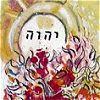
Hebrew Study Card
God began the Ten Commandments by saying, "I AM the LORD your God, who brought you out of the land of Egypt, the house of slavery" (Exod. 20:2), rather than saying, "I AM the LORD your God, Creator of heaven and earth" (Gen. 1:1). The LORD refers to himself as our Savior first, since creation is designed to demonstrate His redemptive love given through Yeshua, the "Lamb slain from the foundation of the world" (Rev. 13:8; 1 Pet. 1:18-20; Eph. 1:4; 2 Tim. 1:9). "All things were created by Him (i.e., Yeshua), and for Him" and in Him all things consist (συνεστηκεν, lit. "stick together") (Col. 1:16-17). Creation therefore begins and ends with the love of God as manifested in the Person of Yeshua our Messiah, the great Lamb of God... He is the Center of Creation - the Aleph and Tav - the Beginning and the End (Isa. 44:6; Rev. 1:17). All the world was created for the Messiah: "For from him and through him and to him are all things. To him be glory forever. Amen" (Rom. 11:36).
Parashat Beha'alotekha - בהעלתך

[ The Torah reading for this coming Shabbat is parashat Beha'alotekha... ]
06.02.14 (Sivan 4, 5774) Our Torah portion this week (Beha'alotekha) begins with God giving instructions about how Aaron was to service the lamps of the Menorah within the Holy Place of the Tabernacle (Num. 8:1-4). Each day Aaron was to clean each of the seven lamps and to refill them with the very purest olive oil. The wicks were then to be bent so that the six outer lamps shined toward the seventh (and central) shaft. The lamps were to be lit daily, "from evening until morning," in a specific sequence - starting from the central lamp (the shamash) and then moving right to left (Exod. 27:21). According to the Talmud (Shabbat 22b), while all the lamps received the same amount of olive oil, the central lamp miraculously never ran out of oil, even though it was kindled first in the sequence. This miracle is also reported to have occurred during the Temple period, though it abruptly ended about 40 years before the destruction of the Second Temple (c. 30 AD), after the death of Yeshua the Messiah, the true Servant and Branch of the LORD. As it is attested in the Talmud: "Our Rabbis taught: During the last forty years before the destruction of the Temple the lot ['For the Lord'] did not come up in the right hand; nor did the crimson-colored strap become white; nor did the centermost light shine" (Yoma 39a).
The portion next describes how the Levites were to be set apart for service at the Tabernacle (Num. 8:5-12). In a ceremony that signified a sort of "rebirth," they were first sprinkled with mei hachatat (מֵי חַטָּאת), literally, "the waters of sin" (Num. 8:7), that is, the water mixed with the ashes of the red heifer that purified from contamination with death (Num. 19:13). Next they shaved off all their hair and were completely immersed in a mikveh (a bath containing flowing water). The steps of being sprinkled with purifying water, shaving off of all the hair, and being completely immersed in a mikveh are similar to the ritual for the cleansing of the metzora, or "leper" (Lev. 14:2-32). Rashi notes that each member of the community was required to place their hands on the Levites' heads, just as the hands were placed on the head of a sacrificial animal as it was slaughtered before the altar (Num. 8:10; Lev. 1:4, 3:2). The "waving" of the Levites by the High Priest likewise simulated the ritual of "tenufah" (תְּנוּפָה), that is, the waving of the guilt sacrifice (asham) offered by the leper after his cleansing (Lev. 14:12). Finally, the Levites themselves were to lay their hands on sin and whole burnt offerings to make atonement before the LORD (Num. 8:12).
The Israelites had been camped at Sinai for nearly a year before God commanded them to begin their journey back to the Promised Land. It was at Sinai that Moses had first set up the Tabernacle, dedicated the priesthood, and taught the people the commandments of the Torah. In the "second year, in the second month, on the 20th day of the month" (i.e., Iyyar 20), the cloud lifted from over the Tabernacle and Moses dispatched the Ark of the Covenant to follow after it into the desert (Num. 10:33-36). Moses then directed the people to set out "by stages" toward the desert of Paran (in the Negev).
After just three days into their journey the people began to complain about their hardship, and God became angry and caused a fire to burn in the outskirts of the camp. In addition, the 70 elders of Israel were killed, and the fires raged until Moses interceded on behalf of the nation. This station of the journey was thereafter named "Taberah" (burning).
Some time after this, the "mixed multitude" began lusting after meat, and the Israelites began weeping for the "free fish" they had enjoyed back in Egypt. Moses despaired for his life and told God the burden of the people was too much for him. God then instructed him to appoint 70 new elders that would be filled with the Holy Spirit so they could help bear the burden of leadership, and as for the people's complaints about the lack of meat and the boring taste of "manna," God promised to send so much meat that it would "come out of their nostrils." God then caused an enormous flock of quails to begin falling from the sky around the camp, which the people began to gather and cook. However, while "the meat was yet between their teeth" the quail became a plague and many Israelites died. This station of the journey was thereafter named "the graves of craving" (Kivrot ha-ta'avah).
After this, the Israelites set out to a place they called Chazerot ("enclosures"), where Aaron and Miriam privately slandered Moses and his leadership. Miriam not only questioned Moses' decision to leave his wife, but also questioned his unique role as the mediator of the covenant at Sinai. God then instructed Moses, Aaron, and Miriam to come to the Tabernacle, where He descended in a pillar of cloud. The LORD then called Aaron and Miriam forward and warned them that Moses was uniquely chosen to be the leader of Israel, since God spoke to him plainly and only Moses was permitted to behold the likeness (temunah) of the LORD Himself. When the pillar of cloud ascended, Miriam was left with tzara'at ("leprosy"), the punishment for lashon hara (evil speech). Despite Moses' and Aaron's intercession for her, however, the LORD banished Miriam from the camp for seven days, after which time she was brought back and the LORD directed the people further into the desert of Paran.
You can download the Shabbat Table talk for this week's Torah here:
Note: Because this week we celebrate the holiday of Shavuot, there are some additional Torah readings. Please see the Parashah HaShavu'ah page for more information.
Remembering Sinai...

[ The great holiday of Shavuot ("Pentecost") begins Tuesday, June 3rd at sundown... ]
06.01.14 (Sivan 3, 5774) Though there is no holiday-specific commandment associated with Shavuot (i.e., "weeks," or "Pentecost"), there is the general commandment given to every Jew: "Only take care, and keep your soul diligently, lest you forget the things that your eyes have seen, and lest they depart from your heart all the days of your life. Make them known to your children and your children's children - how on the day that you stood before the LORD your God at Horeb, the LORD said to me, 'Gather the people to me, that I may let them hear my words, so that they may learn to fear me all the days that they live on the earth, and that they may teach their children so' (Deut. 4:9-10). Indeed, the deliverance from Egypt leading to the revelation at Sinai is regarded as the most momentous since creation: "For ask now of the days that are past, which were before you, since the day that God created man on the earth, and ask from one end of heaven to the other, whether such a great thing as this has ever happened or was ever heard of. Did any people ever hear the voice of a god speaking out of the midst of the fire, as you have heard, and still live? …To you it was shown, that you might know that the LORD is God (יהוה הוּא הָאֱלהִים); ein od milvado (אֵין עוֹד מִלְבַדּוֹ) - there is no other besides him" (Deut. 4:32-5).
וְיָדַעְתָּ הַיּוֹם וַהֲשֵׁבתָ אֶל־לְבָבֶךָ
כִּי יְהוָה הוּא הָאֱלהִים בַּשָּׁמַיִם מִמַּעַל
וְעַל־הָאָרֶץ מִתָּחַת אֵין עוֹד
ve·ya·da·ta · ha·yom · va·ha·she·vo·tai · el · le·va·ve·kha
ki · Adonai · hu · ha·E·lo·him · ba·sha·ma·yim · mi·ma·al
ve·al · ha·a·retz · mi·ta·chat · ein ·od

"Know therefore today, and lay it to your heart,
that the LORD is God in heaven above and on the earth beneath;
there is no other." - Deut. 4:39

During the season of Shavuot, then, we remember the revelation at Sinai; we celebrate the joy of our liberation and our adoption as God's chosen children; we reaffirm our love of God's truth, and we thank God for the Torah written upon our hearts by the Holy Spirit...
Heart of Goodness...
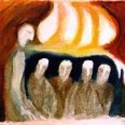
[ The great holiday of Shavuot ("Pentecost") begins sundown, June 3rd... ]
06.01.14 (Sivan 3, 5774) In the Ethics of the Fathers (Avot 2), the sages debated what was the most important attribute to become a suitable bearer of God's message on earth. One sage answered, having a good eye (ayin tovah); another said being a good neighbor, and another said being wise in one's deeds. Rabbi Elazar, however, said having a "good heart" was most important, which was agreed to be the best answer. Having a good heart is the foundation for spiritual life, but it is impossible to have such a heart apart from the miracle of the Holy Spirit. Note that the gematria of a "good heart," or lev tov (לֵב טוֹב), is 49, the number of days between Passover and the giving of the Holy Spirit at Pentecost. May God pour out His Spirit upon us so that we have the heart of Yeshua within us!
The Book of God...

06.01.14 (Sivan 3, 5774) "You shall count seven weeks… then you shall keep the Feast of Weeks to the LORD your God, and you shall rejoice before the LORD your God" (Deut. 16:9-11). The 49 days between the great Exodus and the revelation at Sinai are called yamim shel sefirah (יָמִים שֶׁל סְפִירָה), the "days of counting." As soon as Israel departed from Egypt they began to count the days until they would encounter God, as Moses had earlier promised, and their excitement climaxed when they arrived at Sinai on the third month after the Exodus (Exod. 19:1) -- just a few days before the anticipated 50th day ("Pentecost"). Note that the word "sefirah" ("counting") is composed of two separate words, "sefer" (סֵפֶר), meaning "book," and Yah (יָהּ), a name for God. During the 49 days we count down to the revelation of Torah, the Book of God, the Word of God, given to us on Shavuot.

Note that Shavuot is also called Yom Habikkurim (יוֹם הַבִּכּוּרִים), the "day of first fruits" , a time when the first crops of the land were to be offered at the Temple (Num. 28:26; Deut. 8:8). God calls Israel "my son, my first born son" (Exod. 4:22), which alludes to the idea of first fruits, since the word bechor (בְּכוֹר), "first born" and bikkurim (בְּכּוּרִים), "first fruits" share the same Hebrew root. Israel was to represent the first fruits of a redeemed humanity. The bechor (first born) was blessed to help others draw near to God for salvation.
Again, from a Messianic point of view, the climax of the 49 days was not the giving of the lawcode at Sinai, but rather the revelation of the altar (i.e., the Tabernacle) and its subsequent fulfillment in the sacrificial death of Yeshua as our Lamb of God. Moreover, it was during this time that Yeshua made His post-resurrection appearances to His disciples - and indeed ascended to heaven during this 49 day period... Of particular importance is the holiday of Shavuot, day 7x7 of the count, when the Holy Spirit (Ruach ha-Kodesh) was given to the disciples in fulfillment of the promise of Yeshua that we would not be left comfortless... Shavuot, then, marks the time of "Jubilee" of the Spirit, when are clothed with power from on high to serve the LORD without fear...
Note: The commandment of Sabbath begins with the letter Zayin (ז) of the word zakhor (זָכוֹר), and Zayin is the 7th letter of the Hebrew alphabet. Moreover, the commandment begins in the 7th verse of the Ten Commandents (Exod. 20:8), and together this alludes to the "Jubilee" of Shavuot – freedom from what enslaves and hinders us – the blessing of God's salvation and peace. The Sabbath was made for man, not man for the Sabbath...
|



